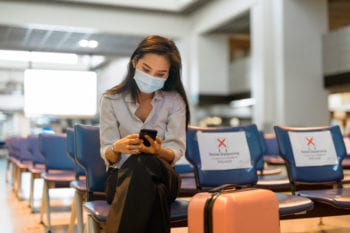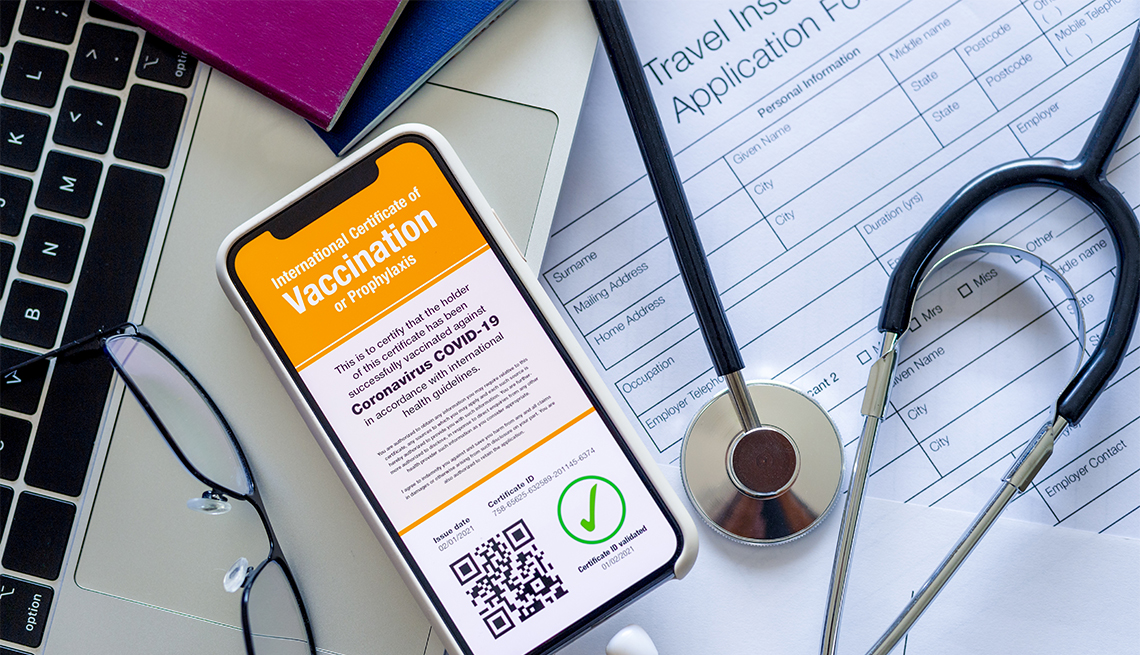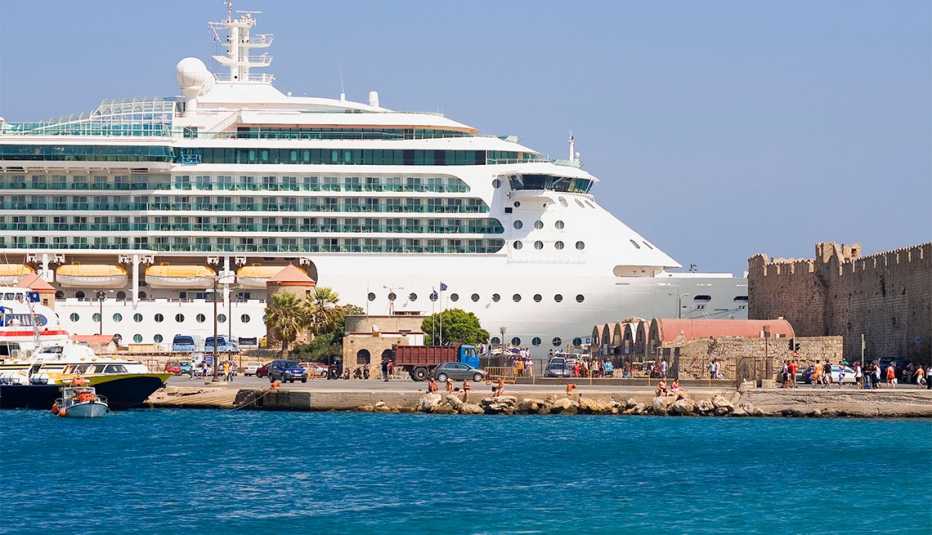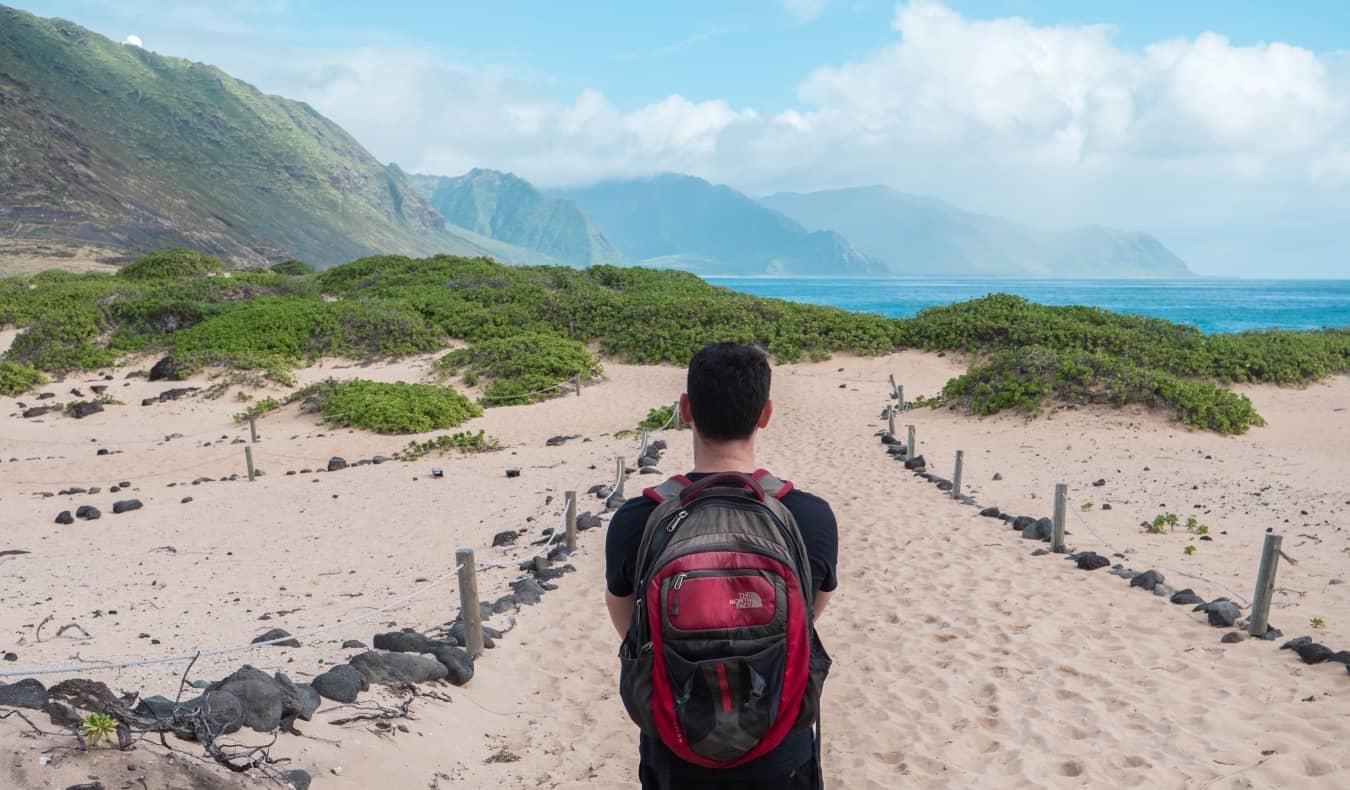- Skip to primary navigation
- Skip to main content
- Skip to primary sidebar
- Skip to footer

- Best Global Medical Insurance Companies
- Student Insurance
- Overseas Health Insurance
- Insurance for American Expats Abroad
- Canadian Expats – Insurance and Overseas Health
- Health Insurance for UK Citizens Living Abroad
- Expat Insurance for Japanese Abroad
- Expat Insurance for Germans Living Abroad
- Travel Medical Insurance Plans
- Annual Travel Insurance
- Visitors Insurance
- Top 10 Travel Insurance Companies
- Evacuation Insurance Plans
- Trip Cancellation Insurance
- International Life Insurance
- Corporate and Employee Groups
- Group Global Medical Insurance
- Group Travel Insurance
- Group Life Insurance
- Foreign General Liability for Organizations
- Missionary Groups
- School & Student Groups
- Volunteer Programs and Non-Profits
- Bupa Global Health Insurance
- Cigna Close Care
- Cigna Global Health Insurance
- Cigna Healthguard
- Xplorer Health Insurance Plan
- Navigator Student Health Insurance
- Voyager Travel Medical Plan
- Trekker Annual Multi-Trip Travel Insurance
- Global Medical Insurance Plan
- Patriot Travel Insurance
- Global Prima Medical Insurance
- Student Health Advantage
- Patriot Exchange – Insurance for Students
- SimpleCare Health Plan
- WorldCare Health Plan
- Seven Corners Travel Insurance
- SafeTreker Travel Insurance Plan
- Unisure International Insurance
- William Russell Life Insurance
- William Russell Health Insurance
- Atlas Travel Insurance
- StudentSecure Insurance
- Compare Global Health Insurance Plans
- Compare Travel Insurance Plans
- Health Insurance in the USA
- Health Insurance in Mexico
- Health Insurance in Canada
- Health Insurance in Argentina
- Health Insurance in Colombia for Foreigners
- Health Insurance in Chile
- UK Health Insurance Plans for Foreigners
- Health Insurance in Germany
- French Health Insurance
- Italian Health Insurance
- Health Insurance in Sweden for Foreigners
- Portuguese Health Insurance
- Health Insurance in Spain for Foreigners
- Health Insurance in China
- Health Insurance in Japan
- Health Insurance in Dubai
- Health Insurance in India
- Thailand Health Insurance
- Malaysian Health Insurance for Foreigners
- Health Insurance in Singapore for Foreigners
- Australian Health Insurance for Foreigners
- Health Insurance in New Zealand
- South Africa Health Insurance for Foreigners
- USA Travel Insurance
- Australia Travel Insurance
- Mexico Travel Insurance
- News, Global Health Advice, and Travel Tips
- Insurance Articles
- Travel Advice and Tips
- Best Travel Insurance for Seniors
- Best Hospitals in the United States
- Best International Hospitals in the UK
- Best Hospitals in Mexico
Or call for a quote: 877-758-4881 +44 (20) 35450909
International Citizens Insurance
Medical, Life and Travel Plans!
U.S. 877-758-4881 - Intl. +44 (20) 35450909

Travel Insurance Requirements Keep Changing — Here Are the Latest Mandates

These travel insurance requirements are changing rapidly. Even if your destination is not on the list now, it may require travel insurance by the date of your trip. Check both when you book your ticket and a day before departure to ensure that your insurance meets the latest mandates.
This list was up to date as of December 8, 2023 and includes the specific international medical insurance requirements from each country. All prices are in USD unless otherwise noted.
Learn more about international travel medical insurance and the best travel insurance companies .
Travel Insurance Requirements by Country
Argentina no longer requires Covid-19 tests, vaccines, or health insurance to enter the country. (Source: Ministry of Foreign Affairs, International Trade and Worship )
There are no travel authorizations required to enter Bermuda. Visitors must fill out the Bermuda Arrival Card . You can do this digitally or paper copies are available at the airport. (Source: Government of Bermuda )
Cayman Islands
The Cayman Islands no longer have any Covid-19 travel restrictions. You will need to show only your ID, immigration card, and customs declaration form to enter the country. (Source: Cayman Islands Department of Tourism )
Travelers to Cuba must have travel medical insurance that covers COVID-19. Negative Covid-19 tests and proof of vaccination are no longer required. Masks are still mandatory at airports. (Source: Cuba Tourist Board of Canada , Cuba Travelers’ Form )
Travel insurance is recommended but not required. (Source: Tourism Fiji )
International visitors must have a travel medical or international health insurance policy. (Source: Israel Ministry of Health , The Embassy of Israel to the United States )
Saudi Arabia
As part of the tourism visa process, visitors must purchase health insurance from the Saudi government for SAR180, or about $48 USD. (Source: Saudi Tourism Authority )
Schengen Area Countries
(Including Austria, Belgium, Croatia, the Czech Republic, Denmark, Estonia, Finland, France, Germany, Greece, Hungary , Iceland, Italy, Latvia, Liechtenstein, Lithuania, Luxembourg, Malta, the Netherlands, Norway, Poland, Portugal, Slovakia, Slovenia, Spain, Sweden and Switzerland): Visitors who require a visa must have travel medical insurance valid for the duration of their stay, with minimum coverage of €30,000 (about $32,320 USD). (Source: Portugal Ministry of Foreign Affairs , Switzerland State Secretariat for Migration )
Visitors to Seychelles must fill out the digital Travel Authorization form . (Source: The Seychelles Islands )
Travelers to Singapore are required to fill out the SG Arrival Card. You can do this up to three days before arriving in the country. (Source: Singapore Immigration & Checkpoints Authority )
Sint Maarten
Travelers to Sint Maarten must fill out an Embarkation and Disembarkation card (ED-card), either digitally or on the airplane. (Source: U.S. Department of State )
All travelers to Turkey must have international medical insurance that covers them for the duration of their visit. (Source: Ministry of Foreign Affairs )
Visitors must have an insurance policy from an insurance company registered in Ukraine that offers a minimum of €30,000 ($32,320 USD) in coverage. The policy must be valid for the duration of stay. (Source: Visit Ukraine )
As of June 16, 2023, health insurance is no longer required to enter Uruguay. (Source: Ministry of Public Health , Embassy of Uruguay NY )
Vietnam recently lifted its travel insurance requirements, but still recommends travel insurance with a minimum $10,000 USD coverage. (Source: Embassy of the Socialist Republic of Vietnam in the United States )
Looking for International Travel & Medical Insurance?
Request a free quote and we'll guide you through the process.
Get a fast, free, international insurance quote.
Global medical plans, specialty coverage, company info, customer service.
- Best Extended Auto Warranty
- Best Used Car Warranty
- Best Car Warranty Companies
- CarShield Reviews
- Best Auto Loan Rates
- Average Auto Loan Interest Rates
- Best Auto Refinance Rates
- Bad Credit Auto Loans
- Best Auto Shipping Companies
- How To Ship a Car
- Car Shipping Cost Calculator
- Montway Auto Transport Reviews
- Best Car Buying Apps
- Best Websites To Sell Your Car Online
- CarMax Review
- Carvana Reviews
- Best LLC Service
- Best Registered Agent Service
- Best Trademark Service
- Best Online Legal Services
- Best CRMs for Small Business
- Best CRM Software
- Best CRM for Real Estate
- Best Marketing CRM
- Best CRM for Sales
- Best Payroll Services
- Best HR Software
- Best HR Outsourcing Services
- Best HRIS Software
- Best Performance Management Software
- Best Personal Loans
- Best Fast Personal Loans
- Best Debt Consolidation Loans
- Best Personal Loans for Bad Credit
- Best Home Equity Loan Rates
- Best Home Equity Loans
- What Is a HELOC?
- HELOC vs. Home Equity Loan
- Best Free Checking Accounts
- Best High-Yield Savings Accounts
- Bank Account Bonuses
- Checking Accounts
- Savings Accounts
- Money Market Accounts
- Best CD Rates
- Citibank CD Rates
- Synchrony Bank CD Rates
- Chase CD Rates
- Capital One CD Rates
- Best Hearing Aids
- Best OTC Hearing Aids
- Most Affordable Hearing Aids
- Eargo Hearing Aids Review
- Best Medical Alert Systems
- Best Medical Alert Watches
- Best Medical Alert Necklaces
- Are Medical Alert Systems Covered by Insurance?
- Best Online Therapy
- Best Online Therapy Platforms That Take Insurance
- Best Online Psychiatrist Platforms
- BetterHelp Review
- Best Mattress
- Best Mattress for Side Sleepers
- Best Mattress for Back Pain
- Best Adjustable Beds
- Best Home Warranty Companies
- American Home Shield Review
- First American Home Warranty Review
- Best Home Appliance Insurance
- Best Moving Companies
- Best Interstate Moving Companies
- Best Long-Distance Moving Companies
- Cheap Moving Companies
- Best Window Replacement Companies
- Best Gutter Guards
- Gutter Installation Costs
- Best Window Brands
- Best Solar Companies
- Best Solar Panels
- How Much Do Solar Panels Cost?
- Solar Calculator
- Best Car Insurance Companies
- Cheapest Car Insurance Companies
- Best Car Insurance for New Drivers
- Same-day Car Insurance
- Best Pet Insurance
- Pet Insurance Cost
- Cheapest Pet Insurance
- Pet Wellness Plans
- Best Life Insurance
- Best Term Life Insurance
- Best Whole Life Insurance
- Term vs. Whole Life Insurance
- Best Travel Insurance Companies
- Best Homeowners Insurance Companies
- Best Renters Insurance Companies
- Best Motorcycle Insurance
Partner content: This content was created by a business partner of Dow Jones, independent of the MarketWatch newsroom. Links in this article may result in us earning a commission. Learn More

Countries Requiring Travel Insurance: What You Need To Know
Learn more about travel insurance providers and costs while securing your free quote.
in under 2 minutes

Nicole Leigh West is an experienced lifestyle journalist and writer for publications including Wanderlust, TripSavvy and Vacations & Travel. Along with roaming the globe and penning fiction novels, Nicole works for World Words as a sub-editor and writer.

Tori Addison is an editor who has worked in the digital marketing industry for over five years. Her experience includes communications and marketing work in the nonprofit, governmental and academic sectors. A journalist by trade, she started her career covering politics and news in New York’s Hudson Valley. Her work included coverage of local and state budgets, federal financial regulations and health care legislation.
Travel insurance can offer financial protection and peace of mind if the unexpected happens on an international trip, but is it mandatory? While some countries require travel insurance, you do not always need coverage abroad.
Whether you’re traveling to the Seychelles, Jordan, the United Arab Emirates or Argentina, determining if you need travel insurance should be at the top of your planning list. We at the MarketWatch Guides Team have compiled a list of countries that require or strongly advise you to have a travel insurance policy to visit.

Why Trust MarketWatch Guides
Our editorial team follows a comprehensive methodology for rating and reviewing travel insurance companies. Advertisers have no effect on our rankings.
Companies Reviewed
Quotes Collected
Rating Factors
Countries Requiring Travel Insurance
Some countries require foreign visitors to show proof of travel insurance for a variety of reasons, including unstable diplomatic relations or visa requirements. For example, you must purchase travel insurance to obtain a long-term travel visa for the Schengen area.
The following countries require travel insurance as of June 2023:
- The Galapagos Islands
- Saudi Arabia
- Schengen Visa countries*
*Requires travel insurance or can request proof of insurance to issue a visa. Note that the above list is not exhaustive.
Many countries introduced pandemic-related entry requirements, including vaccination and travel medical insurance, which are now revoked. But even if travel insurance is not required, the U.S. Department of State highly recommends purchasing a policy to cover unexpected medical expenses while you’re overseas.
Whether you want to travel to Turkey, Thailand, Jamaica or the Bahamas, entry rules change frequently. Below are some examples of countries and situations that require proof of travel insurance (as of June 2023).
All visitors, including U.S. citizens, must obtain a visa to visit Bhutan . You must have a valid travel insurance policy to cover the duration of your trip in order to apply for a visa. Visas are issued after tourists complete an application or apply through a valid travel and tour operator.
Travel medical insurance is required to visit Cuba . Since coverage is mandatory, insurance is typically included in airline ticket prices purchased in the U.S. You can also buy medical travel insurance on arrival at the airport.
While this type of insurance covers emergency medical evacuation and medical treatment, you can purchase a policy through a travel insurance company for comprehensive coverage that includes trip cancellation and interruptions.
According to the State Department’s current travel advisory , you may need COVID-19 medical coverage to travel to Myanmar. Health screening procedures are in place at ports of entry, and U.S. citizens that produce positive test results are subject to isolation or quarantine.
Schengen Countries
There are 27 countries in Europe’s Schengen area , a region that allows free movement between borders. U.S. passport holders can travel for up to 90 days within a 180-day period without a Schengen visa. To stay for longer, you’ll need to apply for a visa at the embassy of the Schengen country you wish to reside in.
Whether it’s for business, study or long-term travel, you may choose to stay in Europe for an extended period. Most countries require travel insurance to issue visas. Insurance requirements typically include coverage for medical emergencies and medical repatriation, and health insurance plans may need to comply with minimum coverage limits.
Countries That Advise Purchasing Travel Insurance
If you take a look at official tourism sites, you may notice that many countries advise purchasing travel health insurance. From hospitalization to injury treatment and emergency evacuation, unforeseen circumstances can result in significant upfront expenses.
Below are some examples of regions where travel insurance is highly recommended.
There are many ways to explore Antarctica — from flights to cruises and wildlife discoveries. Generally, you’ll visit as part of an organized tour, and companies may require travel insurance for participation.
Galapagos Islands
Many people visit the natural wonderland of Ecuador’s Galapagos Islands on cruises and organized tours. While it’s not necessary to have travel insurance to visit Ecuador, some tour agencies require proof before booking tours to the islands.
Medical facilities are limited across the Maldives . Malé, the capital, has some fully equipped hospitals, and most resort islands have first-aid clinics with access to doctors. However, in the case of an emergency, you might be an hour or more away from medical services. For these reasons, travel insurance is recommended to offset the cost of emergency medical treatment, evacuation and repatriation.
Fulfilling Travel Insurance Requirements
While comprehensive travel insurance covers hassles such as trip cancellations, delays and baggage loss, most insurance requirements focus on emergency medical care. Whether you’re visiting Aruba, Bermuda, Chile, Dubai or Nepal, travel insurance requirements are likely to include:
- Emergency medical insurance: Covers emergency expenses incurred due to accidental injuries and unforeseen illnesses while traveling. Hospitals and clinics may require upfront payment or proof of travel insurance from visitors.
- Emergency medical evacuation and repatriation: Evacuation insurance helps cover the cost of getting you home or to the nearest hospital if you’re seriously sick or injured in an area without appropriate medical care. Repatriation insurance coverage includes the cost of returning your body home if you die while traveling.
Travel medical insurance may also include emergency dental care, accidental death and permanent disability. Depending on the policy, benefit limits range from $10,000 to $500,000 or more.
Is Travel Insurance Mandatory?
As a general rule, travel insurance coverage is not mandatory to travel. However, some countries require travel insurance to enter. Travel advisories change constantly and the country you plan to visit for your next trip may implement a requirement on short notice. If your destination country does not require insurance, it is ultimately up to you to decide if buying travel insurance is worth it .
Reasons Behind Travel Insurance Requirements
Countries may enforce health insurance policy requirements in the event of threats to public health — such as pandemics. Typically, these requirements help ensure visitors can pay medical bills if required, along with mitigating risks for both travelers and local healthcare facilities.
Consequences of Non-Compliance
When travel insurance is mandatory to enter a country, your airline will likely require proof of a policy before you board. Otherwise, you may be denied entry at immigration checkpoints, whether on land or at airports. In some cases, fines and convictions may apply.
The Bottom Line: Travel Insurance Requirements for U.S. Citizens
Not every country requires you to have a travel insurance plan to visit — ultimately, it depends on where you are going. Though it’s generally not mandatory for U.S. citizens to have travel insurance, the government strongly recommends coverage for emergency medical costs. Government-issued healthcare does not extend abroad, and travel insurance offers peace of mind in covering medical costs if you’re injured or get sick on vacation.
While countries with travel insurance requirements may only mandate medical coverage, you can also opt for a more extensive policy to protect your entire trip. Comprehensive travel insurance can protect your investment against trip cancellations, delays, baggage loss and more. Shop around to compare prices and policies to find the right insurance for you.
Frequently Asked Questions About Countries With Travel Insurance Requirements
What countries require medical travel insurance.
*Requires travel insurance or can request proof of insurance to issue a visa. Note that the above list is not exhaustive.
However, advisories surrounding countries that require medical travel insurance are constantly changing. You can check the U.S. State Department’s travel advisories for updated information and what rules apply to your travel destination.
Is travel insurance mandatory to travel to Europe?
Travel insurance is not mandatory for U.S. citizens traveling to Europe for up to 90 days in a 180-day period. However, if you’d like to stay longer, travel insurance is typically required when applying for visas for most countries.
What happens if you don’t purchase travel insurance?
Travel insurance is optional if you are visiting a country without requirements. But if you don’t purchase travel insurance for countries that require coverage, you may be denied entry and subject to fines and convictions.
Does travel insurance cover medical emergencies?
Travel insurance can help you avoid upfront costs for medical treatment in the event of accidents and illness while overseas. While private health insurance may include international coverage, plans issued by the U.S. government do not extend abroad. In addition to emergency medical treatment, travel medical insurance typically covers emergency medical evacuation and repatriation.
- Search Search Please fill out this field.
What Does Travel Insurance Cover?
- What Does It Not Cover?
- Travel Insurance Requirements
- When Insurance Is Not Necessary
- Travel Insurance Costs
- When Is It Worth It?
The Bottom Line
- Personal Finance
Do I Need Travel Insurance?
:max_bytes(150000):strip_icc():format(webp)/John_Egan-9937-Editcopy-JohnEgan-e8c3407be32947ba95561ab855d13dc8.jpg)
Westend61 / Getty Images
Travel insurance can offer financial protection if you cancel an expensive, nonrefundable vacation for an approved reason. Travel insurance can also cover your medical bills if you experience a medical emergency while traveling. However, sometimes you can get away with not purchasing it.
“Ultimately, the decision to purchase travel insurance should be based on your individual circumstances, including your destination, planned activities, health condition, and financial situation,” Rajeev Shrivastava, founder and CEO of insurance marketplace VisitorsCoverage, told Investopedia via email.
Key Takeaways
- Travel insurance typically covers a variety of situations, such as trip cancellations, travel delays, lost luggage, medical care, and emergency evacuation.
- A travel insurance policy generally costs 4% to 10% of the cost of a trip.
- Seriously consider buying travel insurance if you’re taking a nonrefundable trip or traveling internationally.
- Existing coverage from homeowners, health insurance, and credit cards might mean you don’t need to buy a separate travel insurance policy, but it's still smart to look at the best travel insurance companies before your trip.
Travel insurance policies typically cover these five financial and health risks:
Trip Cancellations, Interruptions, and Delays
Illness, the death of a traveler’s family member, bad weather, job loss, or a natural disaster are a few circumstances that might trigger reimbursement of prepaid travel costs, such as plane tickets or emergency expenses. However, only reasons outlined by the insurance policy are covered, so review exclusions.
Luggage and Rental Car Damage or Loss
A travel insurance policy might cover lost, stolen, or damaged luggage, personal items, or auto rentals. In some cases, the coverage might include reimbursement of purchases (such as clothing) you needed to make because you didn’t have your luggage. An auto rental damage waiver covers a rental vehicle’s damage or theft.
Travel Health Insurance
Travel insurance kicks in for medical or dental emergencies when your regular U.S. health insurance doesn’t apply. Remember that even if a country has a low-cost or free nationalized health system, you’ll pay out of pocket if you are not a citizen.
Medical Evacuation
Medical evacuation coverage reimburses you if you must be evacuated from a remote area to a hospital. For example, if you become seriously ill while trekking in the Swiss Alps, travel insurance may pay for you to be airlifted to a big-city hospital for treatment. Medical evacuation from a remote location can cost as much as $250,000. This insurance may be part of travel health insurance or a stand-alone policy.
Accidental Death and Dismemberment
This type of coverage pays benefits to your survivors if you get injured or die while on a trip. Injuries are typically limited to losing an eye, hand, foot, or limb.
Many travel insurance policies provide 24/7 assistance to help you find medical care, make travel arrangements, and contact loved ones in an emergency.
What Does Travel Insurance Not Cover?
A standard travel insurance policy won’t cover some cancellation reasons. For example, a standard travel insurance policy won’t provide coverage if you decide to back out of a trip because you need to cut back on spending. You would need to purchase “cancel for any reason” (CFAR) coverage . Even CFAR has its own rules, such as canceling within a specific time frame.
Other losses that traditional travel insurance may or may not cover include:
- Costs associated with preexisting health conditions, pregnancy complications, or mental health issues
- Injury costs after participating in higher-risk activities such as rock climbing or skydiving
- Trip interruption, cancellation, or other losses due to health and disease outbreaks or natural disasters
- Cancellations due to terrorism, civil unrest, or any U.S. State Department warnings
Ask the insurer about exclusions to find out which exclusions apply, or review documentation. You may be able to find travel health insurance coverage that won’t exclude your mountain-climbing injuries, for example.
Which Countries Require Travel Insurance?
Many countries don’t require travel or health insurance now that the COVID-19 pandemic is in retreat. However, future disease outbreaks can influence requirements. Check the U.S. State Department’s website and destination government sites for the most current information on health requirements and recommendations.
For example, Thailand still requires visitors to carry $10,000 in travel medical insurance if they’re coming from a country with pre-departure COVID tests. However, the United States doesn’t require pre-departure COVID testing, making the insurance unnecessary for Americans.
Some nations have blanket requirements for coverage. Cuba requires U.S. airlines leaving from the U.S. to pay for each passenger’s health insurance. Every international traveler entering Saudi Arabia receives government-supplied travel medical insurance for emergencies.
Travelers entering Qatar must purchase emergency and accident services health insurance from a Qatar-registered insurer.
In some countries, you must apply for a visa to visit, even for a few days. In Nepal, U.S. visitors applying for the required six-month visa must demonstrate proof of a six-month international health insurance policy.
When Is Travel Insurance Not Necessary?
Suppose you’re taking a short trip in your own country and have adequate health insurance. In that case, you might not need travel insurance, according to Jason Eckhoff , founder and CEO of the BusinessClass.com travel website, as told to Investopedia via email.]
In addition, if you’re taking a trip with refundable costs—such as airfare—and can cancel it without being financially penalized, then travel insurance may not be necessary.
You may not need travel insurance if your credit card offers robust benefits. Travel credit cards and other credit cards may provide the following coverages:
- Trip cancellation insurance
- Trip delay reimbursement
- Emergency evacuation and transportation
- Accidental death and dismemberment
- Lost or delayed luggage reimbursement
- Auto damage waivers
- Roadside emergency assistance
However, Jiten Puri, founder and CEO of insurance marketplace PolicyAdvisor.com, noted that this coverage might be limited, such as providing only basic medical care or not covering trip cancellation or interruption.
How Much Does Travel Insurance Cost?
Generally, travel insurance costs 4% to 10% of the total prepaid, nonrefundable expenses for your trip. If you buy travel insurance for a cruise with a $6,000 price tag, you might pay anywhere from $240 to $600 for a policy.
The cost of travel insurance varies by insurer. A recent Investopedia review of six insurers’ travel insurance plans offering trip cancellation/interruption, emergency medical/evacuation, and baggage loss/damage found the following ranges:
Factors that affect the cost of travel insurance include:
- Age : This is the largest factor in rates charged for travel insurance. Older travelers and travelers with preexisting medical conditions might find travel insurance costs more than it does for other travelers.
- Coverage type and dollar amount : A policy with fewer coverage types and where your trip expenses are lower typically costs less than coverage for higher dollar amounts or extra benefits, such as CFAR insurance .
- Trip length : The more days you travel, the more risks you might encounter.
- Number of travelers : A trip with six people might be riskier (and cost more) than a trip with two people.
Remember that an insurer may turn you down or charge you more after reviewing your application based on the insurer’s risk standards.
When Is Travel Insurance Worth It?
David Leiter , publisher of The World Travel Guy blog, said it’s generally a good idea to buy travel insurance with appropriate coverages if you’re:
- Taking a pricey trip with nonrefundable costs
- Traveling internationally
- Visiting a remote location without easy access to medical care
Eckhoff suggested considering buying travel insurance if you:
- Have a preexisting medical condition, as long as the policy covers your needs
- Are visiting a country threatened by political instability, natural disasters, or health risks
- Participate in higher-risk activities, increasing the odds of becoming injured or ill
In addition to the above, the U.S. Centers for Disease Control and Prevention (CDC) recommends buying supplemental travel health insurance if you’re traveling for more than six months.
The U.S. State Department suggests buying insurance before you travel and reviewing the country information page of your destination before you travel.
The CDC recommends seeking a travel health insurance policy that makes payments directly to the provider or hospital, provides 24-hour physician support, offers emergency medical transport to the U.S. or equivalent, and covers high-risk activities.
“If you’re shopping for travel insurance, make sure you get something that fits you, your destination, and your style of travel. Think of what’s most likely to go wrong in your situation, and then pick a plan that will cover it,” Leiter recommended.
Do I Need Travel Insurance if I Have Health Insurance?
Your existing health insurance may cover emergency care during international travel. However, only some health insurance plans kick in when traveling abroad. Before buying extra travel insurance, check with your health insurance company about on-the-go coverage; ask if you must seek preauthorization and which exclusions apply.
Do I Need Travel Insurance if My Credit Card Has Built-in Travel Protection?
Built-in travel protection from one of your credit cards may be all you need for your trip. For instance, if your primary goal is to obtain trip cancellation coverage, then your credit card benefits might be adequate. However, you may want to buy travel insurance if your credit card lacks sufficient medical coverage—or offers no medical coverage.
Is Travel Insurance the Same as Cancellation Insurance?
Travel insurance is not the same as cancellation insurance. However, cancellation insurance is often one component of travel insurance. So, your travel insurance policy may offer reimbursement for a cancellation due to specific circumstances, such as a death. But travel insurance can also cover medical expenses, lost baggage, and auto rental damage.
Does Travel Insurance Protect My Possessions?
Homeowners and renters insurance can cover your possessions when you’re traveling. However, that coverage might not be enough to protect valuable items such as jewelry or may not cover the total cost for replacement. Furthermore, filing a homeowners or renters insurance claim might increase your premium.
How Can I Save Money on Travel Insurance?
Don’t go with the first travel insurance policy you come across. Instead, shop around to make sure you’re getting the most coverage at the best price. Also, if you’re booking a trip through a travel agency or tour operator, ask for a package deal, including travel insurance.
Buying travel insurance might not be necessary if you’re traveling domestically or going on a refundable trip, or if you carry adequate coverage through a credit card. “We would always recommend getting travel insurance. But if you are extremely elderly or in very poor health, your travel insurance premiums may be expensive,” Puri said.
Travel insurance generally provides “invaluable peace of mind,” Puri said. For instance, travel insurance can be a smart investment if you’re traveling internationally and purchased a high-cost, nonrefundable trip.
Mass.gov (Commonwealth of Massachusetts). “ Travel Insurance .”
U.S. Centers for Disease Control and Prevention. “ Travel Insurance .”
U.S. Centers for Disease Control and Prevention. “ Travel Insurance, Travel Health Insurance & Medical Evacuation Insurance: CDC Yellow Book 2024 .”
Washington State Office of the Insurance Commissioner. “ Travel Insurance .”
Tourism Authority of Thailand. “ Health Insurance Instruction and Requirements .”
U.S. Centers for Disease Control and Prevention. “ CDC Rescinds Order Requiring Negative Pre-Departure COVID-19 Test Prior to Flight to the U.S. ”
U.S. Department of State, Travel. “ Cuba International Travel Information .”
Saudi Arabia Health Insurance Council. “ Tourists Health Insurance .”
State of Qatar, Ministry of Public Health. “ Mandatory Health Insurance Scheme .”
Government of Nepal, Ministry of Home Affairs, Department of Immigration. “ Information Regarding Visa Reciprocity .”
U.S. Department of State, Travel. “ Insurance Coverage Overseas .”
The Hartford, Extra Mile Blog. “ Traveling? Are You Covered by Insurance? ”
:max_bytes(150000):strip_icc():format(webp)/trip-74f2345da73d46dd942e9383b6f1791a.jpg)
- Terms of Service
- Editorial Policy
- Privacy Policy
- Your Privacy Choices
You are using an outdated browser. Please upgrade your browser to improve your experience.
At ConsumersAdvocate.org, we take transparency seriously.
To that end, you should know that many advertisers pay us a fee if you purchase products after clicking links or calling phone numbers on our website.
The following companies are our partners in Travel Insurance: Allianz Global Assistance , Travelex , TravelInsurance.com , Seven Corners , Generali Global Assistance , Trawick International , Squaremouth , John Hancock , and Faye .
We sometimes offer premium or additional placements on our website and in our marketing materials to our advertising partners. Partners may influence their position on our website, including the order in which they appear on the page.
For example, when company ranking is subjective (meaning two companies are very close) our advertising partners may be ranked higher. If you have any specific questions while considering which product or service you may buy, feel free to reach out to us anytime.
If you choose to click on the links on our site, we may receive compensation. If you don't click the links on our site or use the phone numbers listed on our site we will not be compensated. Ultimately the choice is yours.
The analyses and opinions on our site are our own and our editors and staff writers are instructed to maintain editorial integrity.
Our brand, ConsumersAdvocate.org, stands for accuracy and helpful information. We know we can only be successful if we take your trust in us seriously!
To find out more about how we make money and our editorial process, click here.
Product name, logo, brands, and other trademarks featured or referred to within our site are the property of their respective trademark holders. Any reference in this website to third party trademarks is to identify the corresponding third party goods and/or services.
- Travel Insurance
Do I Really Need Travel Insurance?
The following companies are our partners in Travel Insurance: Allianz Global Assistance , Travelex , TravelInsurance.com , Seven Corners , Generali Global Assistance , Trawick International , Squaremouth , John Hancock , and Faye .
We sometimes offer premium or additional placements on our website and in our marketing materials to our advertising partners. Partners may influence their position on our website, including the order in which they appear on a Top 10 list.
The analyses and opinions on our site are our own and our editors and staff writers are instructed to maintain editorial integrity. Our brand, ConsumersAdvocate.org, stands for accuracy and helpful information. We know we can only be successful if we take your trust in us seriously!
To find out more about how we make money and our editorial process, click here.
10 Best Travel Insurance of 2024
When you’re planning to travel or go on vacation, do you also account for mishaps? No one wants to think of the worst possible scenarios, but doing so can help prepare you mentally and financially. In case of an accident or emergency, travel insurance provides coverage during your trip. Before you research your options and contact an insurance agent, the underlying question to ask yourself is:
Is Travel Insurance Really Needed?
The answer: it depends.
Unlike car or home insurance, which are for tangible, daily necessities, travel insurance is not necessarily a required expense. Travel can be considered as a form of leisure, and even a privilege, for those who can afford it.
Is the additional cost worth it? Are you willing to take the risk without it, or would you rather have peace of mind knowing you’re covered? Let’s analyze different scenarios and explore several situations in which travel insurance would be a good investment.
THE BENEFITS OF TRAVEL INSURANCE
Just as other types of insurance, travel insurance covers unexpected expenses so that the insured doesn’t break the bank.
If you’re traveling, whether for your job, the holidays, or any other reason, there is always the possibility of trip cancellation or delay.
Sometimes those interruptions are due to medical or other types of emergencies, such as severe weather. If your health insurance only provides partial or no coverage outside of the country, and you’re injured overseas, travel insurance could take care of it.
For individuals who simply do not travel or only travel for special occasions, travel insurance doesn’t sound like a wise investment. Nevertheless, you don’t want to encounter a crisis while on a trip and discover that your regular health insurance doesn’t cover it.
WHAT ARE MY COVERAGE OPTIONS?
There are three major types of travel insurance:
1. Trip cancellation coverage to refund your trip purchase in case it is canceled or interrupted.
2. Medical coverage for emergency care while traveling
3. Theft coverage for stolen luggage or other personal belongings
Travelers can also opt for comprehensive travel insurance, a policy that combines all three types of coverages.
REASONS TO ACQUIRE TRAVEL INSURANCE
If you’re planning an international trip, especially one that will last for an extended period, you’ll most likely need to plan in advance and invest a lot more money than for a domestic trip.
In addition to covering non-refundable purchases, such as plane tickets, hotels, and excursions, your health and safety while away from home are important factors to consider.
A general rule of thumb for acquiring travel insurance is if you will be participating in any activity in which your health and wellbeing are likely to be at risk, even if it’s just walking around a city.
Medical Reasons
If you or anyone else traveling with you—spouse, child, or other family members—has a medical condition, it’s best to purchase travel insurance in case of a medical emergency .
Depending on your health insurance policy, coverage may be partial or unavailable while traveling, especially if you’re traveling internationally.
In the case that your health insurance doesn’t provide international coverage, or if the deductible is too much of a financial strain, travel insurance takes care of that out-of-pocket expense.
As previously explained, health insurance coverage may not provide coverage while overseas. For those who have Medicare, coverage is limited outside of the United States and only accommodates rare exceptions.
If you plan to be out of the country long term or have a health insurance policy with limited coverage overseas, travel insurance is a wise backup plan.
Unless provided by the cruise line for emergencies, individuals aboard cruises do not have access to internet or cell phone service.
While medical physicians and services are provided on cruise ships, life-threatening situations require emergency medical evacuation, such as helicopter transport, which may not be covered under general medical insurance.
Also, keeping storms and hurricanes in mind for cruise trips, travel insurance is a good way to protect your investment.
Travel As a Living
Nowadays, it’s common for people to use their excursions as a primary source of income. From travel bloggers to social media influencers, digital nomads can be abroad year around, working remotely.
Individuals who travel as a living heavily depend on their equipment for working, including cell phones, laptops, cameras, along with additional necessities such as car rentals.
Travel insurance will help cover lost or damaged personal items and car rental accidents, as well as medical emergencies, while abroad.
Need To Cancel a Trip
In the event that plane tickets, tours, or other prepaid excursions are non-refundable, they can become a financial strain if sickness or injury occurs before a trip and the traveler needs to cancel.
There are other reasons someone may need to cancel a prepaid trip last minutes, such as sudden death in the family, the loss of employment, or jury duty. When unforeseen circumstances leave you no choice but to cancel your travel plans, travel insurance can reimburse you for the loss.
Weather and Natural Disasters
We’d like to be optimistic about planned vacations, but hurricanes and other types of natural disasters can show up without warning and cause destruction beyond repair.
If your destination is a high-risk area for experiencing bad weather or natural disasters that can affect your travel plans, travel insurance would be a valuable asset.
Lost or Stolen Personal Items
Luggage, personal belongings, and even your passport are at risk of being lost or stolen, especially when traveling internationally and across different airlines.
While airlines do cover lost luggage within baggage claim, once you leave the area and claim lost luggage, it’s no longer the responsibility of the airline. With travel insurance, the cost to replace the lost or stolen belongings can provide peace of mind.
Travel Delays, Cancellations, and Overnight Stays
Sometimes flight delays happen without warning and travelers experience a prolonged layover. Airlines with non-refundable policies will generally compensate customers in these situations by finding new flights, offering vouchers, and booking hotel rooms for those with overnight layovers.
If the customer opts out of the airline’s offer and chooses to cancel the trip altogether, travel insurance can provide a refund of the expenses, enabling the traveler to purchase from a different airline without experiencing financial loss.
WHEN IT’S FINE TO AVOID TRAVEL INSURANCE
If you’re planning a road trip with friends or flying to a nearby state, you can probably opt out of travel insurance. Staying within the country is usually less expensive than traveling abroad, and health insurance will still be able to provide full coverage.
When airlines cancel flights, basic policies enable customers to receive compensation, which is generally that airline’s next available flight to the same destination. If you have no issue waiting for the delay, then travel insurance isn’t necessary.
Also, many credit cards offer travel insurance as a perk, such as trip cancellation protection. If your credit card provider will cover the cost of a new flight ticket or medical expenses, then it’s fine to forego travel insurance altogether.
HOW MUCH TRAVEL INSURANCE SHOULD I ACCOUNT FOR?
When weighing your options, it’s important to first analyze your travel plans and personal needs. Some people travel internationally for work, but only for a short time.
Others may travel as a lifestyle and therefore spend more time away from home and family.
Consider your current state of health, such as:
- Medications
- Physical Condition
Evaluate your budget and how much you’re willing to pay in addition to regular travel expenses. Travel insurance can range from five to ten percent of the total trip cost, the equivalent of $500 to $1000 for a $10,000 trip.
Lastly, compare your travel insurance options. You might be surprised that similarly priced plans offered by different companies may vary in the number of items they cover. If prices vary, understand that some factors—age, destination, length of travel, among others—influence insurance premiums.
Just like any other insurance policy, travel insurance serves to protect you financially against medical and unforeseen expenses incurred during your trip. Be sure to know your rights as an air passenger in advance of booking flights, as well as the coverage limits on your health insurance and credit card if applicable.
If travel insurance sounds like a good investment for you or your family during your next planned trip, check out our top travel insurance companies to find and compare policies that best meet your budget and personal needs.
You May Also Like
- Credit Cards
- All Credit Cards
- Find the Credit Card for You
- Best Credit Cards
- Best Rewards Credit Cards
- Best Travel Credit Cards
- Best 0% APR Credit Cards
- Best Balance Transfer Credit Cards
- Best Cash Back Credit Cards
- Best Credit Card Sign-Up Bonuses
- Best Credit Cards to Build Credit
- Best Credit Cards for Online Shopping
- Find the Best Personal Loan for You
- Best Personal Loans
- Best Debt Consolidation Loans
- Best Loans to Refinance Credit Card Debt
- Best Loans with Fast Funding
- Best Small Personal Loans
- Best Large Personal Loans
- Best Personal Loans to Apply Online
- Best Student Loan Refinance
- Best Car Loans
- All Banking
- Find the Savings Account for You
- Best High Yield Savings Accounts
- Best Big Bank Savings Accounts
- Best Big Bank Checking Accounts
- Best No Fee Checking Accounts
- No Overdraft Fee Checking Accounts
- Best Checking Account Bonuses
- Best Money Market Accounts
- Best Credit Unions
- All Mortgages
- Best Mortgages
- Best Mortgages for Small Down Payment
- Best Mortgages for No Down Payment
- Best Mortgages for Average Credit Score
- Best Mortgages No Origination Fee
- Adjustable Rate Mortgages
- Affording a Mortgage
- All Insurance
- Best Life Insurance
- Best Life Insurance for Seniors
- Best Homeowners Insurance
- Best Renters Insurance
- Best Car Insurance
- Best Pet Insurance
- Best Boat Insurance
- Best Motorcycle Insurance
- Travel Insurance
- Event Ticket Insurance
- Small Business
- All Small Business
- Best Small Business Savings Accounts
- Best Small Business Checking Accounts
- Best Credit Cards for Small Business
- Best Small Business Loans
- Best Tax Software for Small Business
- Personal Finance
- All Personal Finance
- Best Budgeting Apps
- Best Expense Tracker Apps
- Best Money Transfer Apps
- Best Resale Apps and Sites
- Buy Now Pay Later (BNPL) Apps
- Best Debt Relief
- Credit Monitoring
- All Credit Monitoring
- Best Credit Monitoring Services
- Best Identity Theft Protection
- How to Boost Your Credit Score
- Best Credit Repair Companies
- Filing For Free
- Best Tax Software
- Best Tax Software for Small Businesses
- Tax Refunds
- Tax Brackets
- Taxes By State
- Tax Payment Plans
- Help for Low Credit Scores
- All Help for Low Credit Scores
- Best Credit Cards for Bad Credit
- Best Personal Loans for Bad Credit
- Best Debt Consolidation Loans for Bad Credit
- Personal Loans if You Don't Have Credit
- Best Credit Cards for Building Credit
- Personal Loans for 580 Credit Score Lower
- Personal Loans for 670 Credit Score or Lower
- Best Mortgages for Bad Credit
- Best Hardship Loans
- All Investing
- Best IRA Accounts
- Best Roth IRA Accounts
- Best Investing Apps
- Best Free Stock Trading Platforms
- Best Robo-Advisors
- Index Funds
- Mutual Funds
- Home & Kitchen
- Gift Guides
- Deals & Sales
- Best of Wellness Awards 2024
- Sign up for the CNBC Select Newsletter
- Subscribe to CNBC PRO
- Privacy Policy
- Your Privacy Choices
- Terms Of Service
- CNBC Sitemap
Follow Select
Our top picks of timely offers from our partners

Everything you need to know about travel insurance before you book your next trip

With more and more people traveling , travel disruptions have increased. You might be ready to book your next vacation, but it's smart to consider buying a comprehensive travel insurance policy that will protect you from financial losses you may incur due to unexpected issues both before you travel and during your trip.
"Travel insurance is often an overlooked investment until the unforeseen happens," says Beth Godlin, a spokesperson with Aon Affinity Travel Practice . "It's designed to give travelers peace of mind and financial protection against the risks of travel."
While some travelers decline purchasing travel insurance because they think it will be costly, Godlin says it doesn't have to be expensive and notes "purchasing it adds an extra layer of protection and security."
Travel insurance is obviously valuable for big-ticket trips, such as a luxury cruise, safari or multi-city international vacation, but it can even be helpful when you're staying closer to home. "When deciding if travel insurance is right for you, I suggest asking yourself what you could stand to lose if you had to cancel last-minute," says Godlin.
CNBC Select spoke to experts in the travel insurance space to get their best advice on everything consumers need to know about travel insurance.
How to find an insurance carrier
Purchasing travel insurance is relatively easy, and there are lots of different options in the marketplace. If you have never purchased a travel insurance plan, a good place to start is sites like InsureMyTrip.com , CoverTrip or Squaremouth , which let you compare different carriers based on both price and coverage. You simply fill out a brief questionnaire about the trip and the traveler.
The benefit of using aggregator sites is shoppers have the ability to view the entire travel insurance marketplace and compare policies all in one place. Squaremouth also provides verified customer reviews to help travelers feel confident about the policy they are purchasing.
There is no charge to use Squaremouth, as they receive commission on every sale directly from the provider, and do not charge any type of fee to consumers.
Beyond comparison sites, you can always visit a specific travel insurance carrier's website for a quote or call the company's toll-free customer service number for information.
CNBC Select has reviewed many of the top travel insurance companies and named AXA Assistance USA Travel Insurance as the best choice overall with three tiers of coverage to choose from and a high financial strength rating. Our runner-up was Travel Guard® Travel Insurance for its offerings available online and coverage for one related child age 17 or younger.
AXA Assistance USA Travel Insurance
The best way to estimate your costs is to request a quote
Policy highlights
AXA Assistance USA offers several travel insurance policies that include travel interruption, trip cancellation, and the option of cancel for any reason (CFAR) coverage.
24/7 assistance available
Travel guard® travel insurance.
Travel Guard offers a variety of plans to suit travel ranging from road trips to long cruises. For air travelers, Travel Guard can help assist with tracking baggage or covering lost or delayed baggage.
If you're using a site like Expedia , for example, to book your reservations, you usually have the option to purchase travel insurance, too, through a third-party provider. You should make sure to carefully review the full details of the policy, because the plans are based around the trip elements (hotel, flight, rental car) and could differ every time you book, and you want to make sure you understand what you're getting.
What does travel insurance cover?
Travel insurance can vary, but policies generally provide coverage for three things: protection for your financial expenses, protection for your well-being and protection for your personal belongings.
When shopping for a policy, look for these benefits:
Trip cancellation coverage
Your travel insurance policy can reimburse you for prepaid, non-refundable trip deposits if a trip is canceled for a covered reason. These outlays can include airline tickets, hotel rooms, rental cars, tours and cruises, says Daniel Durazo, spokesperson with Allianz Travel Insurance .
Examples of acceptable reasons to cancel a trip include illness, injury or death of the traveler, a close family member or a traveling companion; military deployment or civil unrest; a serious family emergency, even unplanned jury duty.
Other reasons include: your travel supplier stops offering services for 24 hours due to a natural disaster, severe weather or a strike, your home or destination becomes uninhabitable or you or a traveling companion lose your job after you purchase your policy.
You typically can't cancel your trip for any reason and expect to be reimbursed just because you have travel insurance. For example, if you have a fight with your friend and don't want to travel with her, or you change your mind about taking a long-haul flight to Hawaii, these are not covered reasons.
If you want the highest level of flexibility to make changes to your trip, consider adding "cancel for any coverage" to your policy. Cancel For Any Reason (CFAR) plans will bump up the cost of your travel insurance by about 40%, but it gives you the latitude to cancel your trip if you need to as long as you meet certain requirements like canceling no later than 48 hours before your scheduled departure.
You won't be reimbursed for 100% of your trip costs. Typically, CFAR coverage will reimburse between 50 to 75% of trip expenses.
Trip delay coverage
Should you experience a hiccup in your travel itinerary, your travel insurance policy can provide some financial relief.
"Travel delay coverage provides reimbursement if a traveler is delayed for one of the policy's covered reasons," says Megan Moncrief, a spokesperson with Squaremouth. "This benefit will typically reimburse for expenses such as food, lodging and local transportation that are incurred during the delay."
Covered reasons will generally include severe weather, airline maintenance or civil unrest.
There's often a waiting period before your benefits kick in.
"In order for a traveler to become eligible for this benefit, they must be delayed for the amount of time listed on their policy," says Moncrief. "Some policies are very lenient and provide benefits available for any length delay, while other policies will specifically list a length requirement. This typically ranges from three to 12 hours. All travel delay policies will come with a daily limit, as well as a policy limit ranging from a couple hundred to a couple thousand dollars."
Daily limits typically range from $150 to $250 per traveler, while the policy limit can range from $500 to $2,000, Moncrief says. It's very important to save all your receipts as you will be required to submit them with your reimbursement claim.
Don't miss: The best credit cards with trip delay insurance
Trip interruption coverage
Should you need to cut your trip short due to illness or injury you experience during your trip, or if there's a family emergency back home, your policy may reimburse non-refundable expenses you forfeit if you return home early.
Your policy may also cover the cost of a one-way economy airline ticket home. Not all reasons are covered, however. For example, if your beach vacation is a washout or you miss your new puppy, your trip interruption benefits won't apply.
Medical expenses and emergency-evacuation benefits
If you're traveling within the U.S., your personal health insurance should cover any illness or injury you sustain while you are on a trip. But if you're traveling to a foreign country, your U.S.-based health plan will provide zero or very little coverage, and Medicare isn't accepted abroad, so it's good to sign up for additional coverage.
"Domestic healthcare plans are usually not accepted outside the U.S., so it's especially important to get travel insurance with medical coverage and emergency medical transportation when traveling internationally," says Durazo. "If you do become ill or injured while traveling, these benefits can cover your medical costs including doctors' fees and hospital costs."
In addition, your travel carrier's customer support hotline can help. "Allianz's 24/7 assistance team can coordinate your care with the doctors treating you in your destination, as well as ensure you're at an appropriate medical facility up to U.S. standards," he says.
Even more expensive than medical treatment is an emergency medical evacuation, something the right travel insurance policy can arrange and cover. "Medical evacuation and transport costs range from $15,000 to $200,000+, depending on the traveler's health condition and their location in the world," says Durazo.
"If you're heading overseas, you'll need the additional protection of emergency medical benefits and emergency medical transportation benefits," he adds. "And if you're visiting more remote areas, there's always a chance you may need emergency medical transportation to get you to an appropriate health care facility."
Find the best credit card for you by reviewing offers in our credit card marketplace or get personalized offers via CardMatch™ .
Baggage loss
Should your checked baggage take a detour and not arrive at your destination, your travel insurance policy could be a saving grace.
"If your travel insurance plan includes baggage benefits, your insurer can reimburse you, up to the maximum shown on the Confirmation of Coverage, for covered loss, theft or damage to your baggage and personal items," says Durazo. "Every plan has specific coverage limits for each benefit, which are outlined in the plan documents."
For example, Allianz Partners' OneTrip Prime plan , covers baggage loss up to $1,000 and baggage delay up to $300 while the OneTrip Premier includes up to $2,000 in baggage loss/damage and up to $600 for baggage delay.
Your personal possessions are also covered if lost or stolen while you're traveling. "Travel insurance can reimburse you for the actual cash value, repair or replacement — whichever is less, based on the limits in your insurance policy's letter of confirmation," says Durazo.
You must report losses to your airline, airport, police or other relevant authority like a tour operator or hotel manager. You will need this documentation when you file a claim.
Not all items are covered by your travel insurance policy. For example, cash is not reimbursable, and many policies won't cover very expensive jewelry, art, antiques or heirloom items. To reduce the risk of losing irreplaceable items, don't bring these items on vacation. And make sure to read your policy carefully to see what is covered.
Money matters — so make the most of it. Get expert tips, strategies, news and everything else you need to maximize your money, right to your inbox. Sign up here .
What you should know about Covid-19 and travel insurance
When it comes to Covid coverage , travel insurance plans can vary from one another, so you should read your policy carefully and ask your insurance provider if you have questions, says Godlin.
Also, regulations around travel have evolved during the pandemic, with some countries requiring specific travel insurance coverage for entry. "As a result, we're seeing new policies emerge to directly meet those needs," she says.
How much is travel insurance?
Travel insurance can vary a lot depending on how much coverage you're getting and how expensive your trip is. CoverTrip advises its customers that travel insurance plans cost between 4 to 10% of the total trip cost. So if you're spending $5,000 on a European tour, your insurance could be anywhere from $200 to $500.
Of course, there are budget plans out there that could cost (and cover) less. And you could also shell out for premium coverage so you can take advantage of a "cancel for any reason" policy. Whichever plan you choose, make sure you read the fine print so you understand what you're paying for.
Your credit card may offer built-in travel protection
You may have a credit card in your wallet that offers travel insurance . "Travel insurance is a common benefit for credit cards that often comes at no additional cost to the cardholder," says Francis Hondal, president of loyalty and engagement with MasterCard. "It can also be extremely easy to take advantage of it—the key is knowing what coverage you have so you don't waste money on additional coverage you don't need."
Coverage is automatic when you make a relevant purchase, she says. "So, for instance, if you have trip cancellation insurance on a card, you're covered when you book a flight using that card. Same goes for checking your bag and activating your lost luggage protection," Hondal says.
It's important to know if and how you're covered when making travel-related purchasing decisions. Mastercard offers a digital insurance platform, mycardbenefits.com . You can usually find more information on your credit card's website.
To ensure you reap the travel insurance benefits your card offers, you must charge the trip expenses on your card.
"Where credit card travel insurance can shine is if you run into weather problems or mechanical delays, or if you get sick while traveling or even if your luggage gets lost or delayed," says Ted Rossman, senior industry analyst, Bankrate.com.
The Chase Sapphire Reserve® is an industry leader in these areas, he says. It offers up to $10,000 per person and $20,000 per trip in the form of trip cancellation/trip interruption coverage. If you run into a flight delay lasting at least six hours, you can get up to $500 per ticket to book a different flight, stay in a hotel, buy food, etc.
If your luggage is late, you can get up to $100 per day for up to five days to buy necessities.
"If something really bad happens while you're abroad, [Chase Sapphire Reserve travel insurance] will pay for up to $100,000 of emergency evacuation and transportation coverage," says Rossman. "And the Sapphire Reserve also gives primary rental car insurance benefits, meaning that you can decline the rental car company's expensive coverage, and you won't need to go through your personal car insurance if you get into an accident while renting a car."
Chase Sapphire Reserve®
Earn 5X total points on flights and 10X total points on hotels and car rentals when you purchase travel through Chase Travel℠ immediately after the first $300 is spent on travel purchases annually. Earn 3X points on other travel and dining & 1 point per $1 spent on all other purchases plus, 10X points on Lyft rides through March 2025
Welcome bonus
Earn 60,000 bonus points after you spend $4,000 on purchases in the first 3 months from account opening. That's $900 toward travel when you redeem through Chase Travel℠.
Regular APR
22.49% - 29.49% variable
Balance transfer fee
5%, minimum $5
Foreign transaction fee
Credit needed.
Terms apply.
Read our Chase Sapphire Reserve® review.
Rossman says another good pick is the Chase Sapphire Preferred® Card which also has very good coverage although slightly less coverage than the Sapphire Reserve card, in line with a lower annual fee. Even the no-annual-fee Chase Freedom Flex℠ gives up to $1,500 per person and up to $6,000 per trip in trip cancellation/trip interruption coverage, Says Rossman.
For more information on cards that offer travel insurance, check out CNBC Select's round-up of the best travel credit cards .
Chase Sapphire Preferred® Card
Enjoy benefits such as 5x on travel purchased through Chase Travel℠, 3x on dining, select streaming services and online groceries, 2x on all other travel purchases, 1x on all other purchases, and $50 annual Chase Travel Hotel Credit, plus more.
Earn 60,000 bonus points after you spend $4,000 on purchases in the first 3 months from account opening. That's $750 when you redeem through Chase Travel℠.
21.49% - 28.49% variable on purchases and balance transfers
Either $5 or 5% of the amount of each transfer, whichever is greater
Excellent/Good
Read our Chase Sapphire Preferred® Card review .
Is travel insurance worth it?
Travel insurance can be useful in many scenarios, from a medical emergency forcing you to cut your trip short to a tropical storm ravaging your destination. If you've spent a lot of non-refundable money on your trip, you could be at a loss if something goes awry.
There are several scenarios where travel insurance could be worth it , including if:
- You're traveling internationally where your US-based health insurance won't apply
- You've spent a lot on prepaid, non-refundable expenses
- You're traveling to a remote area
- Your flight involves multiple connections or destinations
For those who have spent a good amount of money on their trip, getting trip insurance generally makes sense whether that's through a separate policy or through a credit card you booked the trip with.
Catch up on Select's in-depth coverage of personal finance , tech and tools , wellness and more, and follow us on Facebook , Instagram and Twitter to stay up to date.
Information about the Chase Freedom Flex℠ has been collected independently by Select and has not been reviewed or provided by the issuer of the card prior to publication.

- How a CLUE report affects your insurance rates Ryley Amond
- What to do if your homeowners insurance claim is denied Liz Knueven
- Best car insurance companies in Illinois based on price, customer service and coverage Liz Knueven
June 1, 2020
Due to travel restrictions, plans are only available with travel dates on or after
Due to travel restrictions, plans are only available with effective start dates on or after
Ukraine; Belarus; Moldova, Republic of; North Korea, Democratic People's Rep; Russia; Israel
This is a test environment. Please proceed to AllianzTravelInsurance.com and remove all bookmarks or references to this site.

Use this tool to calculate all purchases like ski-lift passes, show tickets, or even rental equipment.

Travel Insurance 101: How Travel Insurance Works

What is travel insurance?
Travel insurance is a plan you purchase that protects you from certain financial risks and losses that can occur while traveling. These losses can be minor, like a delayed suitcase, or significant, like a last-minute trip cancellation or a medical emergency overseas.
In addition to financial protection, the other huge benefit of travel insurance is access to assistance services , wherever you are in the world. Our elite team of travel and medical experts can arrange medical treatment in an emergency, monitor your care, serve as interpreters, help you replace lost passports and so much more. Sometimes, they even save travelers’ lives.
A few things you should know about travel insurance:
- Benefits vary by plan. It’s important to choose a plan that fits your needs, your budget and your travel plans. Here are definitions of all available travel insurance benefits.
- Travel insurance can’t cover every possible situation. Allianz Travel Insurance is named perils travel insurance, which means it covers only the specific situations, events, and losses included in your plan documents, and only under the conditions we describe.
- Travel insurance is designed to cover unforeseeable events —not things you could easily see coming, or things within your control. If, for example, you wait to buy insurance for your beach trip until after a named hurricane is hustling toward your destination, your losses wouldn’t be covered.
How does travel insurance work?
In most scenarios, travel insurance reimburses you for your covered financial losses after you file a claim and the claim is approved. Filing a claim means submitting proof of your loss to Allianz Global Assistance, so that we can verify what happened and reimburse you for your covered losses. You can file a claim online , or do it on your phone with the Allianz TravelSmart TM app .
How does this work in real life? Let’s say you purchase the OneTrip Prime Plan , which includes trip cancellation benefits, to protect your upcoming cruise to Cozumel. Two days before departure, you experience a high fever and chest pain. Your doctor diagnoses bacterial pneumonia and advises you to cancel the trip. When you notify the cruise line, they tell you it’s too late to receive a refund.
Without travel insurance, you’d lose the money you spent on your vacation. Fortunately, a serious, disabling illness can be considered a covered reason for trip cancellation , which means you can be reimbursed for your prepaid, nonrefundable trip costs. Once you’re feeling better, you gather the required documents—such as your airfare and cruise line receipts and information about any refunds you did or did not receive—and you file a claim . You can even choose to receive your reimbursement by direct deposit, to your debit card, or via check.
Sometimes, this process works a little differently. Travel insurance may pay your expenses upfront if you require emergency medical treatment or emergency transportation while traveling overseas. Or, with the OneTrip Premier and OneTrip Prime plans, you may be eligible to receive a fixed payment of $100 per day for a covered travel delay or $100 for a covered baggage delay . No receipts for purchases are required; all you need is proof of your covered delay.
Many travelers are wondering: Can COVID-19 be considered a covered reason for trip cancellation? And can travel insurance help if you become seriously ill with COVID-19 while traveling? Most of our travel insurance plans now include epidemic-related covered reasons (benefits vary by plan and are not available in all jurisdictions). The Epidemic Coverage Endorsement adds covered reasons to select benefits for certain losses related to COVID-19 and any future epidemic. To see if your plan includes this endorsement and what it covers, please look for "Epidemic Coverage Endorsement" on your Declarations of Coverage or Letter of Confirmation. Terms, conditions and exclusions apply. Benefits may not cover the full cost of your loss. All benefits are subject to maximum limits of liability, which may in some cases be subject to sublimits and daily maximums.
> Learn more: Travel Insurance and COVID-19: The Epidemic Coverage Endorsement Explained
How to choose a travel insurance plan
There’s a wide range of Allianz Travel Insurance plans, each with different benefits and benefit limits. So how do you know which is best for you? To begin, get a quote for your upcoming trip. When you enter your age, trip costs and trip dates, we can recommend a few plans for you. Then, you can compare the costs and benefits of each.
If you’re a budget-conscious traveler who’s traveling in the U.S., you may like the OneTrip Cancellation Plus Plan . It includes trip cancellation, trip interruption and trip delay benefits.
If you want protection in case of medical emergencies overseas, but you have few pre-paid trip expenses, you may consider the OneTrip Emergency Medical Plan . This affordable plan includes emergency medical and emergency transportation benefits, as well as other post-departure benefits, but not trip cancellation/interruption.
If you want the reassurance of carrying substantial travel insurance benefits, the best fit may be the OneTrip Prime Plan . This plan also covers kids 17 and under for free when traveling with a parent or grandparent (not available on policies issued to Pennsylvania residents).
If you’re planning several trips in the next 12 months, consider annual travel insurance such as the AllTrips Prime Plan . It gives you affordable protection for a full year of travel, including benefits for trip cancellation and interruption; emergency medical care; lost/stolen or delayed baggage; and Rental Car Damage and theft protection (available to residents of most states).
> Find the right travel insurance plan for you
How to get the most from your travel insurance plan
Don’t wait too long to buy travel insurance! The best time to buy travel insurance is immediately after you’ve completed your travel arrangements. The earlier you buy insurance, the bigger your coverage window. Also, you must buy your plan within 14 days of making your initial trip deposit in order to be eligible for the pre-existing medical condition benefit (not available on all plans).
Read your plan documents before you leave. If you're not completely satisfied with your plan, you have 15 days (or more, depending on your state of residence) to request a refund, provided you haven't started your trip or initiated a claim. Premiums are non-refundable after this period.
Call us when you need help. If you have questions about how travel insurance works, or how to file a claim, or which benefits you need, please contact us ! Our representatives are available 24/7. If you’re already traveling, and you’re facing a travel crisis or just need some advice, call our emergency assistance hotline .
> Read more about how we can help
Related Articles
- What Does Travel Insurance Cover?
- How Travel Insurance Covers Family Members
- Trip Delay, Trip Interruption and Trip Cancellation Insurance Explained

Get a Quote
{{travelBanText}} {{travelBanDateFormatted}}.
{{annualTravelBanText}} {{travelBanDateFormatted}}.
If your trip involves multiple destinations, please enter the destination where you’ll be spending the most time. It is not required to list all destinations on your policy.
Age of Traveler
Ages: {{quote.travelers_ages}}
If you were referred by a travel agent, enter the ACCAM number provided by your agent.
Travel Dates
{{quote.travel_dates ? quote.travel_dates : "Departure - Return" | formatDates}}
Plan Start Date
{{quote.start_date ? quote.start_date : "Date"}}
Share this Page
- {{errorMsgSendSocialEmail}}
Your browser does not support iframes.
Popular Travel Insurance Plans
- Annual Travel Insurance
- Cruise Insurance
- Domestic Travel Insurance
- International Travel Insurance
- Rental Car Insurance
View all of our travel insurance products
Terms, conditions, and exclusions apply. Please see your plan for full details. Benefits/Coverage may vary by state, and sublimits may apply.

Insurance benefits underwritten by BCS Insurance Company (OH, Administrative Office: 2 Mid America Plaza, Suite 200, Oakbrook Terrace, IL 60181), rated “A” (Excellent) by A.M. Best Co., under BCS Form No. 52.201 series or 52.401 series, or Jefferson Insurance Company (NY, Administrative Office: 9950 Mayland Drive, Richmond, VA 23233), rated “A+” (Superior) by A.M. Best Co., under Jefferson Form No. 101-C series or 101-P series, depending on your state of residence and plan chosen. A+ (Superior) and A (Excellent) are the 2nd and 3rd highest, respectively, of A.M. Best's 13 Financial Strength Ratings. Plans only available to U.S. residents and may not be available in all jurisdictions. Allianz Global Assistance and Allianz Travel Insurance are marks of AGA Service Company dba Allianz Global Assistance or its affiliates. Allianz Travel Insurance products are distributed by Allianz Global Assistance, the licensed producer and administrator of these plans and an affiliate of Jefferson Insurance Company. The insured shall not receive any special benefit or advantage due to the affiliation between AGA Service Company and Jefferson Insurance Company. Plans include insurance benefits and assistance services. Any Non-Insurance Assistance services purchased are provided through AGA Service Company. Except as expressly provided under your plan, you are responsible for charges you incur from third parties. Contact AGA Service Company at 800-284-8300 or 9950 Mayland Drive, Richmond, VA 23233 or [email protected] .
Return To Log In
Your session has expired. We are redirecting you to our sign-in page.
- Best Travel Insurance 2024
- Cheapest Travel Insurance
- Trip Cancellation Insurance
- Cancel for Any Reason Insurance
- Seniors' Travel Insurance
- Annual Travel Insurance
- Cruise Insurance
- COVID-19 Travel Insurance
- Travel Medical Insurance
- Medical Evacuation Insurance
- Pregnancy Travel Insurance
- Pre-existing Conditions Insurance
- Mexico Travel Insurance
- Italy Travel Insurance
- France Travel Insurance
- Spain Travel Insurance
- Canada Travel Insurance
- UK Travel Insurance
- Germany Travel Insurance
- Bahamas Travel Insurance
- Costa Rica Travel Insurance
- Disney Travel Insurance
- Schengen Travel Insurance
Is travel insurance worth it?
- Average cost of travel insurance
- Is airline flight insurance worth it?
- Places to travel without a passport
- All travel insurance guides
- Best Pet Insurance 2024
- Cheap Pet Insurance
- Cat Insurance
- Pet Dental Insurance
- Pet Insurance That Pays Vets Directly
- Pet Insurance For Pre-Existing Conditions
- Pet Insurance with No Waiting Period
- Paw Protect Review
- Spot Pet Insurance Review
- Embrace Pet Insurance Review
- Healthy Paws Pet Insurance Review
- Pets Best Insurance Review
- Lemonade Pet Insurance Review
- Pumpkin Pet Insurance Review
- Fetch Pet Insurance Review
- Figo Pet Insurance Review
- CarePlus by Chewy Review
- MetLife Pet Insurance Review
- Average cost of pet insurance
- What does pet insurance cover?
- Is pet insurance worth it?
- How much do cat vaccinations cost?
- How much do dog vaccinations cost?
- All pet insurance guides
- Best Business Insurance 2024
- Business Owner Policy (BOP)
- General Liability Insurance
- E&O Professional Liability Insurance
- Workers' Compensation Insurance
- Commercial Property Insurance
- Cyber Liability Insurance
- Inland Marine Insurance
- Commercial Auto Insurance
- Product Liability Insurance
- Commercial Umbrella Insurance
- Fidelity Bond Insurance
- Business Personal Property Insurance
- Medical Malpractice insurance
- California Workers' Compensation Insurance
- Contractor's Insurance
- Home-Based Business Insurance
- Sole Proprietor's Insurance
- Handyman's Insurance
- Photographer's Insurance
- Esthetician's Insurance
- Salon Insurance
- Personal Trainer's Insurance
- Electrician's Insurance
- E-commerce Business Insurance
- Landscaper's Insurance
- Best Credit Cards 2024
- Best Sign-Up Bonuses
- Instant Approval Cards
- Best Cash Back Credit Cards
- Best Rewards Credit Cards
- Credit Cards for Bad Credit
- Balance Transfer Credit Cards
- Student Credit Cards
- 0% Interest Credit Cards
- Credit Cards for No Credit History
- Credit Cards with No Annual Fee
- Best Travel Credit Cards
- Best Airline Credit Cards
- Best Hotel Credit Cards
- Best Gas Credit Cards
- Best Business Credit Cards
- Best Secured Credit Cards
- Best American Express Cards
- American Express Delta Cards
- American Express Business Cards
- Best Capital One Cards
- Capital One Business Cards
- Best Chase Cards
- Chase Business Cards
- Best Citi Credit Cards
- Best U.S. Bank Cards
- Best Discover Cards
- Amex Platinum Card Review
- Amex Gold Card Review
- Amex Blue Cash Preferred Review
- Amex Blue Cash Everyday Review
- Capital One Venture Card Review
- Capital One Venture X Card Review
- Capital One SavorOne Card Review
- Capital One Quicksilver Card Review
- Chase Sapphire Reserve Review
- Chase Sapphire Preferred Review
- United Explorer Review
- United Club Infinite Review
- Milestone Mastercard Review
- Destiny Mastercard Review
- OpenSky Credit Card Review
- Self Credit Builder Review
- Chime Credit Builder Review
- Aspire Card Review
- Amex Gold vs Platinum
- Amex Platinum vs Chase Sapphire Reserve
- Capital One Venture vs Venture X
- Capital One SavorOne vs Quicksilver
- How to get Amex pre-approval
- Amex travel insurance explained
- Chase Sapphire travel insurance guide
- Chase Pay Yourself Back
- CLEAR vs. TSA PreCheck
- All credit card guides
- Citibank Savings Account Interest Rate
- Capital One Savings Account Interest Rate
- American Express Savings Account Interest Rate
- Western Alliance Savings Account Interest Rate
- Barclays Savings Account Interest Rate
- Discover Savings Account Interest Rate
- Chase Savings Account Interest Rate
- U.S. Bank Savings Account Interest Rate
- Marcus Savings Account Interest Rate
- Synchrony Bank Savings Account Interest Rate
- Ally Savings Account Interest Rate
- Bank of America Savings Account Interest Rate
- Wells Fargo Savings Account Interest Rates
- SoFi Savings Account Interest Rate
- Best Savings Accounts & Interest Rates
- Best High Yield Savings Accounts
- Best 7% Interest Savings Accounts
- Best 5% Interest Savings Accounts
- Savings Interest Calculator
- Emergency Fund Calculator
- Pros and Cons of High-Yield Savings Accounts
- Types of Savings Accounts
- Checking vs Savings Accounts
- Average Savings by Age
- How Much Should I Have in Savings?
- How to Make Money
- How to Save Money
- Compare Best Checking Accounts
- Compare Online Checking Accounts
- Best Business Checking Accounts
- Compare Best Teen Checking Accounts
- Best Student Checking Accounts
- Best Joint Checking Accounts
- Best Second Chance Checking Accounts
- Chase Checking Account Review
- Bluevine Business Checking Review
- Amex Rewards Checking Account Review
- E&O Professional Liability Insurance
- Best Savings Accounts & Interest Rates
- All Insurance Guides
- Compulsory Insurance Destinations
On This Page
- Key takeaways
Which countries require travel insurance?
Why do countries require travel insurance, what happens if you don’t have the required insurance, what should a good travel insurance policy include, how to prove you have travel insurance, countries that require travel insurance faqs, related topics.
What Countries Require Travel Insurance for Entry?
- Some countries require all visitors to purchase travel insurance before vacationing in their nation.
- Travel insurance can protect you from unexpected losses you may incur during your trip, such as injuries and canceled flights.
- Without travel insurance, y ou’ll be required to cover all losses out-of-pocket.
- If losing the money you’ve saved for a trip would result in financial strain, travel insurance is a worthy investment.
- We recommend using a comparison tool to find the best travel insurance policy for your needs.
Our top picks for the best compulsory insurance destinations
- Seven Corners: Best Rated Travel Insurance
- Tin Leg: Best for Budget Friendly Travelers
- Generali Global Assistance: Best Value Travel Insurance
Our top picks for required travel insurance
Seven corners.

Generali Global Assistance
Not all countries have a mandatory travel insurance policy, such as Canada , for example. But if your destination is one that does, getting familiar with the rules in advance can help your travel plans flow without a hitch. You’ll first need to find out if insurance is required, or simply advised, in your country of choice.
Below, you’ll find a list of vacation destinations that require all visitors to purchase travel insurance. Keep in mind that international travel rules change frequently, meaning the information here is not comprehensive. Use this as a starting point when planning your next trip, but double-check the location’s entry requirements before you jet off.
Antarctica is unlike other travel destinations in that it has unique variables that can produce unexpected losses. For this reason, insurance on your trip to Antarctica is a must-have. Because you’ll likely be traveling with an Antarctica touring company, coverage requirements will vary. A comprehensive plan is typically recommended—one that includes medical evacuation, trip cancellation, and trip interruption.
Travelers to Bermuda are required to purchase health insurance for the duration of their stay. The Bermuda government also recommends that all visitors over age 12 be vaccinated against COVID-19.
To successfully secure a visa for Bhutan , you will be required to provide valid travel insurance for the duration of your travel before your trip.
Traveling to Cuba means complying with regulations set by the Cuban and United States governments . In the U.S., you’ll need to submit personal documentation along with your travel application. You’ll then need to notify the Cuban government of your plans to travel, give them your visa information, and provide proof of travel insurance with medical coverage.
Neither medical nor travel insurance is required to visit Ecuador. However, you will need coverage if you’re planning to visit the Galapagos.
Travelers to Jordan must purchase a travel insurance policy that includes medical coverage.
Those traveling to Myanmar must purchase an insurance policy that contains medical coverage, including coverage for COVID-19 treatment . However, the US Department of State currently advises against traveling to Myanmar and provides a Level 4: Do Not Travel warning .
Travelers to Nepal must provide proof of international health insurance . However, exceptions will be made for visitors under certain circumstances. For insurance requirements relating to your own situation, refer to the Nepal government website for detailed information.
Travel insurance is mandatory for all visitors under regulations set by the Qatar government .
Russian Federation
Before visiting the Russian Federation, all travelers must apply for an entry visa. At any point during the application review process, the Russian Consular Division of the Embassy has the right to request travel insurance containing medical coverage . However, the US Department of State currently advises against traveling to Russia and provides a Level 4: Do Not Travel rating.
By law, all travelers to Rwanda must have health insurance . Attempting to visit Rwanda without it, means you may be asked to purchase a plan upon arriving in the country.
Saudi Arabia
Before visiting Saudi Arabia, you’ll need to purchase an insurance plan. It’s r equired that your plan includes coverage for a COVID-19 infection .
Schengen Visa countries in Europe
The Schengen Area is a collection of 27 European countries that have removed much of the regulation surrounding their shared borders. For travelers, this means a single visa is necessary for visiting all the nations in the Schengen group.
Schengen countries include:
- Czech Republic
- Liechtenstein
- The Netherlands
- Switzerland
Traveling to any of these destinations means you may be asked to show proof of insurance. Depending on the country, your coverage may need to include $50,000 in hospitalization costs, medical evacuation, or a $0 deductible. In some cases, you may need to prove that your insurance company has European offices.
Before traveling, it’s best to check the requirements for the countries you plan to visit in order to avoid surprises.
All travelers to Seychelles must purchase an insurance policy that contains medical coverage valid for the entirety of their stay.
Turkey travelers are asked to purchase travel medical insurance before visiting the country. The extent of this coverage is not specified—the only condition is that y our plan must last the full length of your trip.
Travel insurance for Ukraine must contain medical coverage that includes all treatments related to COVID-19 . Your insurance plan must be purchased from a company registered in Ukraine, or from a foreign company with a representative office in the country. However, the US Department of State currently advises against traveling to Ukraine and provides a Level 4: Do Not Travel notice .
Countries insist on travel insurance for many reasons, including unstable diplomatic relations or existing international agreements (like for those countries in the Schengen group).
In many cases, travel insurance requirements act as a contingency plan for both the traveler and the destination.
In some cases, you may not be allowed to enter a country until you satisfy insurance regulations. In others, a lack of insurance means you’ll incur the cost of any unexpected losses during your trip.
For example, if you experience a medical emergency while abroad, you’ll have to pay for all expenses out-of-pocket. Those without emergency evacuation coverage can also find themselves seriously in debt if they require extensive evacuation and medical treatment.
The best travel insurance plan includes the coverage you need to feel comfortable during your vacation. This may include trip cancellation coverage , missed flights, lost luggage, or health issues.
If you’re concerned about incurring unexpected losses, a comprehensive plan can be a worthy investment.
In most cases, your documentation will show that you have satisfied travel insurance requirements, so you shouldn’t need to carry copies of your insurance plan with you during your trip. However, make sure you keep documentation at home in case you need to file a claim once you get home.
Travel can be a big expense, and adding insurance to your budget may seem unnecessary. But you never know what might happen during your trip—whether it’s lost luggage, a medical emergency, or a missed flight, insurance can protect you from severe financial losses. If you can’t afford to lose the money you’ve saved for your vacation, travel insurance is undoubtedly worth it .
Is travel insurance mandatory for Europe?
If you’re traveling to a country in the Schengen group, you must purchase travel insurance before your trip. For other countries in Europe , you’ll need to comply with the regulations set by each nation. It is not required for travel to some countries, such as when traveling to Ireland .
Is travel insurance mandatory for international travel?
Insurance is not mandatory for all international travel. If your destination has no insurance regulations for visitors from other countries, you don’t necessarily need to purchase a plan. However, insurance is strongly recommended for international travel in all cases, as it may protect you from financial losses if you incur unexpected losses.
What travel insurance do I need?
The travel insurance you need depends on your destination and the personal risk you’re willing to take. If you’re traveling to a country with insurance requirements, you must comply with all regulations before your visit. Any additional coverage is extra protection for unexpected losses. In the event of a cancellation, lost luggage, or medical emergency, travel insurance can be well worth the addition to your trip cost.

Sarah Stasik is well versed in personal finance thanks to her previous role as a Revenue Cycle Manager for a Fortune 500 healthcare company. Using her inside knowledge and expertise, Sarah often covers topics ranging from insurance and the economics of private healthcare to personal finance and small business management.
Over the past 12 years, Sarah has contributed to numerous publications in the personal and small business finance sector, including content on budgeting, bankruptcy, small business accounting, and financial tech. Her writing focuses on making complex or seemingly daunting financial topics more accessible and providing helpful, relevant resources for readers.
Explore related articles by topic
- All Travel Insurance Articles
- Learn the Basics
- Health & Medical
- Insurance Provider Reviews
- Insurance by Destination
- Trip Planning & Ideas

Best Travel Insurance Companies & Plans in 2024
Best Medical Evacuation Insurance Plans 2024

Best Travel Insurance for Seniors

Best Cruise Insurance Plans for 2024

Best COVID-19 Travel Insurance Plans for 2024

Best Cheap Travel Insurance Companies - Top Plans 2024

Best Cancel for Any Reason (CFAR) Travel Insurance

Best Annual Travel Insurance: Multi-Trip Coverage

Best Travel Medical Insurance - Top Plans & Providers 2024

- Is Travel Insurance Worth It?

Is Flight Insurance Worth It? | Airlines' Limited Coverage Explained

Guide to Traveling While Pregnant: Pregnancy Travel Insurance

10 Romantic Anniversary Getaway Ideas for 2023

Best Travel Insurance for Pre-Existing Medical Conditions April 2024

22 Places to Travel Without a Passport in 2024

Costa Rica Travel Insurance: Requirements, Tips & Safety Info

Spain Travel Insurance Plans + Tips for a Safe Spain Vacation

Italy Travel Insurance: Trip Requirements, Tips & Safety Info

Best Travel Insurance for your Vacation to Disney World

Chase Sapphire Travel Insurance Coverage: What To Know & How It Works

2024 Complete Guide to American Express Travel Insurance
Schengen Travel Insurance: Coverage for your Schengen Visa Application

Mexico Travel Insurance: Tips & Safety Information

Best Places to Spend Christmas in Mexico this December

Travel Insurance to Canada: Tips & Quotes for US Visitors
Best Travel Insurance for France Vacations in 2024
Travel Insurance for Germany: Tourist Information & Tips

Best UK Travel Insurance: Coverage Tips & Plans April 2024

Travel Insurance for Trips to the Bahamas: Tips & Safety Info

Europe Travel Insurance: Your Essential Coverage Guide

Best Trip Cancellation Insurance Plans for 2024
Philippines Travel Insurance: Coverage Requirements & Costs

Travel Insurance for the Dominican Republic: Requirements & Tips
Travel Insurance for Trips Cuba: Tips & Safety Info
AXA Travel Insurance Review April 2024

Travel Insurance for Thailand: US Visitor Requirements & Tips

Travel Insurance for a Trip to Ireland: Compare Plans & Prices

Travel Insurance for a Japan Vacation: Tips & Safety Info

Faye Travel Insurance Review April 2024

Travel Insurance for Brazil: Visitor Tips & Safety Info

Travel Insurance for Bali: US Visitor Requirements & Quotes

Travel Insurance for Turkey: U.S. Visitor Quotes & Requirements

Travel Insurance for India: U.S. Visitor Requirements & Quotes

Australia Travel Insurance: Trip Info & Quotes for U.S. Visitors

Generali Travel Insurance Review April 2024

Travelex Travel Insurance Review for 2024

Tin Leg Insurance Review for April 2024

Travel Insured International Review for 2024

Seven Corners Travel Insurance Review April 2024

HTH WorldWide Travel Insurance Review 2024: Is It Worth It?

Medjet Travel Insurance Review 2024: What You Need To Know

Antarctica Travel Insurance: Tips & Requirements for US Visitors

Travel Insurance for Kenya: Recommendations & Requirements

Travel Insurance for Botswana: Compare Your Coverage Options

Travel Insurance for Tanzania: Compare Your Coverage Options
- Travel Insurance
- Travel Insurance for Seniors
- Cheap Travel Insurance
- Cancel for Any Reason Travel Insurance
- Travel Health Insurance
- How Much is Travel Insurance?
- Is Flight Insurance Worth It?
- Anniversary Trip Ideas
- Travel Insurance for Pre-Existing Conditions
- Places to Travel Without a Passport
- Christmas In Mexico
- Europe Travel Insurance
- Philippines Travel Insurance
- Dominican Republic Travel Insurance
- Cuba Travel Insurance
- AXA Travel Insurance Review
- Travel Insurance for Thailand
- Ireland Travel Insurance
- Japan Travel Insurance
- Faye Travel Insurance Review
- Brazil Travel Insurance
- Travel Insurance Bali
- Travel Insurance Turkey
- India Travel Insurance
- Australia Travel Insurance
- Generali Travel Insurance Review
- Travelex Travel Insurance Review
- Tin Leg Travel Insurance Review
- Travel Insured International Travel Insurance Review
- Seven Corners Travel Insurance Review
- HTH WorldWide Travel Insurance Review
- Medjet Travel Insurance Review
- Antarctica Travel Insurance
- Kenya Travel Insurance
- Botswana Travel Insurance
- Tanzania Travel Insurance
Policy Details
LA Times Compare is committed to helping you compare products and services in a safe and helpful manner. It’s our goal to help you make sound financial decisions and choose financial products with confidence. Although we don’t feature all of the products and services available on the market, we are confident in our ability to sound advice and guidance.
We work to ensure that the information and advice we offer on our website is objective, unbiased, verifiable, easy to understand for all audiences, and free of charge to our users.
We are able to offer this and our services thanks to partners that compensate us. This may affect which products we write about as well as where and how product offers appear on our website – such as the order in which they appear. This does not affect our ability to offer unbiased reviews and information about these products and all partner offers are clearly marked. Given our collaboration with top providers, it’s important to note that our partners are not involved in deciding the order in which brands and products appear. We leave this to our editorial team who reviews and rates each product independently.
At the LA Times Compare our mission is to help our readers reach their financial goals by making smarter choices. As such we follow stringent editorial guidelines to ensure we offer accurate, fact-checked and unbiased information to all readers. Learn how we are compensated by our partners.
When Is Travel Insurance Worth It?
Know when you need travel insurance and when you can skip it.
- Newsletter sign up Newsletter

Now that Americans returning to the U.S. from abroad are no longer required to test for COVID-19 before boarding a plane, you might be wondering whether it's worth it to pay for travel insurance . Travel insurance may seem like an unnecessary cost, particularly when fares are refundable or you don’t have to pay a change fee. But there are situations when its mandatory, as well as times when it’s not required but is worth paying for.
What travel insurance covers
While some credit cards offer travel insurance , often, the coverage is limited. Sure, travel insurance through your credit card may cover the cost of your trip if its cancelled, but it likely won't cover expenses if you experience a medical emergency abroad.
By contrast, comprehensive travel insurance policies cover a wide range of expenses. A comprehensive travel policy typically includes several types of coverage all in one plan. This includes coverage for damage to rental cars, trip cancellation, lost baggage and medical expenses when you’re abroad.
Subscribe to Kiplinger’s Personal Finance
Be a smarter, better informed investor.

Sign up for Kiplinger’s Free E-Newsletters
Profit and prosper with the best of expert advice on investing, taxes, retirement, personal finance and more - straight to your e-mail.
Profit and prosper with the best of expert advice - straight to your e-mail.
Another option is to combine the benefits that come with your travel rewards credit card (trip cancellation, lost luggage and trip delay coverage) with a travel medical insurance policy.
How much travel insurance costs
According to data from SquareMouth , a travel insurance comparison site, the overall average cost among all single trip travel insurance policies purchased on their site in 2023 was $283. Comprehensive travel insurance policies averaged at $403, while medical-only policies cost on average $96.
However, the amount you pay for a policy depends on a number of factors — the length of your trip, the number of travelers you need to insure, and even how old you are. A better estimate is 4% to 11% of the total cost of a trip, experts say. You can compare plans at SquareMouth or TravelInsurance . Choose coverages that make sense for your trip, and be sure to read the fine print of any policy you consider.
Travel insurance policies generally fall into one of three tiers: basic, middle-tier and comprehensive coverage.
Although basic is often the most affordable option and includes benefits such as trip cancellation and lost baggage coverage, it may require that you pay a deductible in the event of sickness or injury. According to TravelInsurance.com , a basic coverage policy costs on average $103.
Middle-tier coverage typically includes the same benefits as basic policies but adds a health insurance benefit. A mid-range policy costs on average $124 .
A more expensive, comprehensive policy includes both the benefits of basic or middle-tier policies, plus other benefits like accidental death coverage. However, with a comprehensive policy, you'll likely have to pay a higher claim limit. On average, a comprehensive policy costs $162 .
Because older travelers are generally at higher risk of health problems, policies tend to be more expensive the older you are. A 2021 analysis conducted by AdvisorSmith , a small business resource website, estimated that average prices differed from a low of $92 for a young child to a high of $805 for a 100-year-old person. The difference between a 40-year-old’s and 70-year-old’s average cost of travel insurance may come to about $100. But that doesn’t mean older folks can’t find affordable policies; shopping around and comparing plans is key.
Travel insurance and COVID-19
Most comprehensive travel insurance policies now include cancellation and medical benefits related to contracting COVID-19. For those with other COVID-related concerns during the height of the pandemic, such as border closures or quarantine restrictions, it would have been advisable to pay for what’s called a “cancel for any reason,” or CFAR, upgrade. CFAR travel insurance can tack on an additional 50% to the cost of travel insurance, but it offers better protection for travelers facing pandemic-era complications.
When to buy travel insurance
As of June 12, 2022, travelers returning to the U.S. no longer need to test negative for COVID in order to reenter the country, alleviating fears of being stuck in a foreign country longer than planned. But the Centers for Disease Control and Prevention advises anyone experiencing COVID-like symptoms not to travel. And there are other times when opting for travel insurance is worth the cost.
If you are concerned about severe weather upending your trip, about a possible unexpected health incident involving you or a family member, a terrorist attack, or even losing your job, travel insurance policies with basic trip cancellation coverage often cover those reasons for cancelling. Also, be sure to check the travel restrictions for any countries you are traveling to regularly; some countries still require travel insurance in order to visit.
If you are concerned about severe weather upending your trip, about a possible unexpected health incident involving you or a family member, a terrorist attack, or even losing your job, travel insurance policies with basic trip cancellation coverage often cover those reasons for cancelling.
Furthermore, if you're traveling outside the country, it’s always a good idea to purchase some form of travel medical insurance , even if you're in good health. This way, you won't have to pay out of pocket for any medical costs in the case of an accident or emergency. Even if you have a U.S. health insurance plan, most provide little or no coverage abroad.
When to skip travel insurance
Whether to pay for a travel insurance policy and what level of coverage you get depends on your personal risk tolerance, of course. But it also depends on whether you’ll have to pay a lot out of pocket if you have to cancel or postpone your plans.
If you’re mainly worried about losing money on costly international flights, for instance, think again before you pay to insure them. That also goes for travel insurance plans offered at checkout when purchasing a plane or train ticket. Although it may seem like a small expense in exchange for the added flexibility, keep in mind that most airfares already have built-in flexibility.
Major U.S. airlines made permanent changes during the pandemic, allowing flexible bookings for most tickets. That means you won’t have to pay a fee if you need to change your flight — as long as you don’t buy the cheapest fares (Southwest allows free changes for all tickets). Also, some travel providers offer flexibility on bookings made within a certain time. For instance, the major airlines and Amtrak offer a refund in the first 24 hours after a booking if you have to cancel or change your itinerary.
Also, when an airline cancels your trip—as long as the flight is arriving at and/or departing from a U.S. airport — you are legally entitled to a refund, per U.S. Department of Transportation regulations. An airline will often automatically issue a credit or voucher for a cancelled flight, but be sure to request a refund if that is what you would prefer, as is your right. Also, if there has been a substantial schedule change (typically of two hours or more) and you decide not to take that flight, you are entitled to a refund of your fare.
Related Content
- Here’s What You Need to Know About Travel Medical Insurance
- 10 Credit Cards With Travel Insurance
- Best Travel Rewards Credit Cards
Emma Patch joined Kiplinger in 2020. She previously interned for Kiplinger's Retirement Report and before that, for a boutique investment firm in New York City. She served as editor-at-large and features editor for Middlebury College's student newspaper, The Campus . She specializes in travel, student debt and a number of other personal finance topics. Born in London, Emma grew up in Connecticut and now lives in Washington, D.C.
- Erin Bendig Personal Finance Writer

Being the executor of an estate can be overwhelming, but breaking the process down into individual steps can help make it much less daunting.
By Brian Skrobonja, Chartered Financial Consultant (ChFC®) Published 8 April 24

Deciding how much of your wealth to give to charity or your kids depends on your life stage. Here are key considerations based on age.
By Leslie Gillin Bohner Published 8 April 24

retirement plans Teachers and nonprofit workers can contribute more to a 403(b) retirement plan in 2024 than they could in 2023.
By Jackie Stewart Published 18 January 24

Roth IRAs Roth IRA contribution limits have gone up for 2024. Here's what you need to know.
By Jackie Stewart Published 13 January 24

real estate Here's what you should know before listing your home on Airbnb.
By Miriam Cross Published 31 October 23

Travel Procrastinator? No matter. You can pull off a fun and memorable getaway on a moment's notice — without breaking the bank.
By Vaishali Varu Last updated 31 January 24

insurance Instead of relying on rules of thumb, you’re better off taking a systematic approach to figuring your life-insurance needs.
By Kimberly Lankford Published 24 October 23

Amazon Prime In 2023 Amazon had two Prime Day events — one in July and another, called Big Deal Days, in October. We expect 2024 to follow the same schedule.
By Bob Niedt Last updated 11 October 23

insurance Shopping for life insurance? You may be able to estimate how much you need online, but that's just the start of your search.
By Kaitlin Pitsker Published 3 October 23

Becoming a Homeowner Rates are high this year, but you can still find an affordable loan.
By Daniel Bortz Published 8 September 23
- Contact Future's experts
- Terms and Conditions
- Privacy Policy
- Cookie Policy
- Advertise with us
Kiplinger is part of Future plc, an international media group and leading digital publisher. Visit our corporate site . © Future US, Inc. Full 7th Floor, 130 West 42nd Street, New York, NY 10036.
- Share full article
Advertisement
Travel Insurance: What It Covers and When to Buy It

By Elaine Glusac
In the wake of Covid, travel insurance sales have spiked with the rebound in travel as people seek to protect their investments against flight delays and cancellations, extreme weather events and the persistence of the virus. But travel insurance is complicated with a range of benefits, inclusions and prices. Here’s what you need to know before you buy.
Know what’s covered
Generally speaking, travel insurance covers unforeseen events, like an illness in the family, the loss of a job or a natural disaster, that force you to cancel or interrupt a trip. It can also apply in the event of a strike at a transportation company, a terrorist attack in your destination or when your travel provider goes bankrupt. These are known as covered reasons . Most polices also include medical coverage, which is useful abroad where your health insurance may not cover you.
While policy prices vary based on age, length of travel and type of coverage, expect to pay between 4 to 10 percent of your entire trip cost to get insured.
Insure nonrefundable expenses
Travel insurance was designed to protect expenses you can’t get back any other way when things go wrong. Think of nonrefundable Airbnb reservations or the cost of a cruise to the Galápagos.
If your hotel is refundable and you can get the value of your flights back in credits, you can skip travel insurance.
Buy close to booking
Travel insurers say the best time to buy travel insurance — which usually takes effect within a day of purchase — is just after making your travel plans to have the largest possible coverage window. A lot can happen between booking a Christmas market cruise in Europe in June and going in December.
With many plans, purchasing travel insurance 10 to 14 days from your first trip payment entitles you to “early purchase” benefits such as a waiver for pre-existing medical conditions that impact travel. If such a waiver is included, it is usually prominent in a summary of benefits, so read it carefully.
“Not all plans have a pre-existing condition waiver,” said Suzanne Morrow, the senior vice president of InsureMyTrip.com , an online insurance marketplace. “If I have a heart condition and if something occurs, I don’t want it excluded, so I would need to buy a policy within 14 days of the first dollar spent.”
Hedge against the weather
You can’t control the weather, but you can insure against its unexpected disruptions. For example, if you’re ready to jump on great rates in the Caribbean during the height of hurricane season, buy your insurance immediately after booking so that if a hurricane develops and your destination is evacuated, you’ll be covered.
“That’s probably the biggest use case for travel insurance,” said Stan Sandberg, a co-founder of TravelInsurance.com , an online marketplace. He counsels travelers to buy early — if you wait and the storm is named it will be too late to insure against it, because it is no longer an unforeseen event.
Similarly, with winter travel, if you’ve purchased nonrefundable ski lift tickets and a storm prevents you from reaching the resort, you may be able to claim the unused portion of your ski pass.
This coverage may prove more valuable as climate change exacerbates weather events like hurricanes and tornadoes, which are considered “natural disasters” and are covered by most policies.
Pick up the phone
With the proliferation of automated insurance offers when you buy airline tickets or tours, travel insurance can feel like a one-size-fits-all product. It is not. Many policies, for example, exclude extreme sports like skydiving and mountain climbing, though there are specialty policies that include them.
If you have a specific concern — a family member is sick or you’re going heli-skiing — the best way to know if a travel insurance policy will cover you is to call an insurer or the help line at a travel insurance marketplace to get advice.
“Tell them the what-if scenario and then you can get professional and accurate advice,” Ms. Morrow said. “Thinking you’re covered and then having your claim denied is salt in the wound.”
Travel insurance does not cover ‘unpleasantries’
What if you’re dreading spending a week in an un-air-conditioned rental in England during a heat wave and decide you don’t want to go? Most standard travel insurance will not cover a change of heart.
“Travel insurance doesn’t cover you for unpleasantries,” said Carol Mueller, the vice president for strategic marketing at Berkshire Hathaway Travel Protection.
A policy upgrade, Cancel for Any Reason coverage, which is not available in every state, will cover a change of heart, usually up until a few days before departure. Most only reimburse 50 to 75 percent of your costs and the purchase must be made within weeks of your initial trip payment. It will bump your insurance premium up 40 to 50 percent, according to the insurance marketplace Squaremouth.com , which only recommends C.F.A.R. for travelers with specific concerns not included under covered reasons for trip cancellation.
A relatively new twist in trip protection, Interruption for Any Reason , works like C.F.A.R. in that it reimburses a portion of your expenses and can be invoked if you decide to bail while you’re on a trip for a reason that isn’t covered by standard trip insurance. Normally, you must buy it within weeks of your initial trip payment and be 72 hours into a trip before you can use it.
Keep records
If something goes wrong and you need to make a claim, you’ll need proof in the form of a paper trail. That could be receipts for clothing you purchased when your bags went missing, a hotel room required when your flight was canceled (along with flight cancellation notices from the airline) or a doctor’s note stating that you have Covid — or another illness — and are unable to travel. (With Covid, a positive test taken at home is not considered official documentation for the purposes of a claim.)
Resist pressure to buy flight insurance
When purchasing an airline ticket online, most carriers offer travel insurance to cover the cost with some version of vaguely menacing language like, “Do you really want to risk your investment?” when you decline.
Don’t fall for it. You may want to insure that ticket, but price out the policy elsewhere. A recent offer to insure a $428 flight for nearly $28 on an airline website cost $12 to $96 with a range of options at InsureMyTrip.com.
The $12 option was closest to the airline’s offer. Caveat emptor.
An earlier version of this article misspelled the first name of the senior vice president of InsureMyTrip.com , an online insurance marketplace. It is Suzanne Morrow, not Suzanna.
How we handle corrections
Open Up Your World
Considering a trip, or just some armchair traveling here are some ideas..
52 Places: Why do we travel? For food, culture, adventure, natural beauty? Our 2024 list has all those elements, and more .
Mumbai: Spend 36 hours in this fast-changing Indian city by exploring ancient caves, catching a concert in a former textile mill and feasting on mangoes.
Kyoto: The Japanese city’s dry gardens offer spots for quiet contemplation in an increasingly overtouristed destination.
Iceland: The country markets itself as a destination to see the northern lights. But they can be elusive, as one writer recently found .
Texas: Canoeing the Rio Grande near Big Bend National Park can be magical. But as the river dries, it’s getting harder to find where a boat will actually float .
Use our RMD calculator to estimate your required withdrawals from tax-deferred retirement plans.
Popular Searches
AARP daily Crossword Puzzle
Hotels with AARP discounts
Life Insurance
AARP Dental Insurance Plans
Suggested Links
AARP MEMBERSHIP — $12 FOR YOUR FIRST YEAR WHEN YOU SIGN UP FOR AUTOMATIC RENEWAL
Get instant access to members-only products and hundreds of discounts, a free second membership, and a subscription to AARP the Magazine.
- right_container
Work & Jobs
Social Security
AARP en Español
- Membership & Benefits
- AARP Rewards
- AARP Rewards %{points}%
Conditions & Treatments
Drugs & Supplements
Health Care & Coverage
Health Benefits

Staying Fit
Your Personalized Guide to Fitness

AARP Hearing Center
Ways To Improve Your Hearing

Brain Health Resources
Tools and Explainers on Brain Health

How to Save Your Own Life
Scams & Fraud
Personal Finance
Money Benefits

View and Report Scams in Your Area

AARP Foundation Tax-Aide
Free Tax Preparation Assistance

AARP Money Map
Get Your Finances Back on Track

Budget & Savings
Make Your Appliances Last Longer
Small Business
Age Discrimination

Flexible Work
Freelance Jobs You Can Do From Home

AARP Skills Builder
Online Courses to Boost Your Career

31 Great Ways to Boost Your Career

ON-DEMAND WEBINARS
Tips to Enhance Your Job Search

Get More out of Your Benefits

When to Start Taking Social Security

10 Top Social Security FAQs

Social Security Benefits Calculator

Medicare Made Easy
Original vs. Medicare Advantage

Enrollment Guide
Step-by-Step Tool for First-Timers

Prescription Drugs
9 Biggest Changes Under New Rx Law

Medicare FAQs
Quick Answers to Your Top Questions
Care at Home
Financial & Legal
Life Balance

LONG-TERM CARE
Understanding Basics of LTC Insurance

State Guides
Assistance and Services in Your Area

Prepare to Care Guides
How to Develop a Caregiving Plan

End of Life
How to Cope With Grief, Loss
Recently Played
Word & Trivia
Atari® & Retro
Members Only
Staying Sharp
Mobile Apps
More About Games

Right Again! Trivia

Right Again! Trivia – Sports

Atari® Video Games

Throwback Thursday Crossword
Travel Tips
Vacation Ideas
Destinations
Travel Benefits

Beach vacation ideas
Vacations for Sun and Fun

Plan Ahead for Tourist Taxes

AARP City Guide
Discover Seattle

How to Pick the Right Cruise for You
Entertainment & Style
Family & Relationships
Personal Tech
Home & Living
Celebrities
Beauty & Style

TV for Grownups
Best Reality TV Shows for Grownups

Robert De Niro Reflects on His Life

Free Online Novel
Read 'Chase'

Sex & Dating
Spice Up Your Love Life

Navigate All Kinds of Connections

How to Create a Home Gym

Store Medical Records on Your Phone?

Maximize the Life of Your Phone Battery

Virtual Community Center
Join Free Tech Help Events

Create a Hygge Haven

Soups to Comfort Your Soul

AARP Smart Guide
Spring Clean All of Your Spaces
Driver Safety
Maintenance & Safety
Trends & Technology

How to Keep Your Car Running

We Need To Talk
Assess Your Loved One's Driving Skills

AARP Smart Driver Course

Building Resilience in Difficult Times

Tips for Finding Your Calm

Weight Loss After 50 Challenge

Cautionary Tales of Today's Biggest Scams

7 Top Podcasts for Armchair Travelers

Jean Chatzky: ‘Closing the Savings Gap’

Quick Digest of Today's Top News

AARP Top Tips for Navigating Life

Get Moving With Our Workout Series
You are now leaving AARP.org and going to a website that is not operated by AARP. A different privacy policy and terms of service will apply.
Go to Series Main Page
Do You Need Special Health Insurance to Travel Internationally?
Some countries are requiring proof of medical coverage in the covid-19 era.

Before your next international trip , you may have to add an item to your packing list: proof of health insurance.
As the world begins to reopen to tourism, Americans are finding that some countries, including many Caribbean nations, now require arriving passengers to document that they have medical coverage. And a few, such as Costa Rica , are even demanding special policies that cover up to $2,000 for the expense of quarantining in a hotel if a visitor tests positive for COVID-19, as well as at least $50,000 of expenses relating to coronavirus care.
"We're seeing this more and more,” says Brook Wilkinson, an editor at travel-advice website WendyPerrin. “If someone wants an easy-breezy trip 2019-style, that's going to be tricky."

AARP Membership — $12 for your first year when you sign up for Automatic Renewal
You may already be covered by a health insurance plan in the U.S. A health insurance policy for international travel may be necessary if you don't have your own health plan, if your plan doesn't cover medical care outside of the U.S. or if your destination requires a special country-specific plan.
Here are questions to ask when considering whether you need to purchase travel health insurance.
Does the country you're visiting require travel health insurance?
Before COVID-19, some countries already required visitors to prove they had health insurance coverage, and now a growing number are requiring a special country-specific policy related to the pandemic.
While Western European countries haven't adopted the requirement, countries that have include Cambodia, which requires visitors to buy COVID-19 insurance from a local company ($90 for 20 days); Aruba; the Bahamas; the British Virgin Islands; Dubai; Egypt; Grenada; Jordan; Mauritius; Namibia; Rwanda; Saba; St. Martin/Sint Maarten; the Seychelles; Sri Lanka; and Thailand.
ARTICLE CONTINUES AFTER ADVERTISEMENT
Entry requirements are changing frequently. Ask your travel agent or search online for the latest updates. The best source of information is usually the country's tourism office and the U.S. State Department . Other helpful resources include CanITravel.net and WendyPerrin.com , which maintains a comprehensive list. The sites also have the latest traveler requirements for COVID-19 vaccination, testing and quarantining. Note that the Centers for Disease Control and Prevention (CDC) advises delaying international trips until you are fully vaccinated.
If a country requires special health insurance, you must bring written proof, sometimes specifically mentioning coverage for COVID-19, which the insurer can provide. Without it, airlines may not let you board and some countries may not admit you.
AARP® Dental Insurance Plan administered by Delta Dental Insurance Company
Dental insurance plans for members and their families
Travel Insurance Terms
Travel health insurance covers medical issues that arise while you're traveling. You may need it if you don't have another form of health insurance , your health insurance doesn't fully cover you outside the U.S. or your destination requires visitors to purchase a particular plan.
Medical evacuation insurance covers transportation to a medical facility if there isn't one in your immediate destination. It may be included in a travel health insurance policy or bought separately.
Trip cancellation or disruption insurance allows you to recoup the nonrefundable portion of a trip canceled for a covered reason. Sometimes it covers cancellation in case of illness, but it doesn't cover medical care. It may or may not cover cancellation due to disease outbreaks (such as COVID-19 ) in your destination.
Does your current health insurance policy cover medical care outside the United States?
Even if you have health insurance and special coverage isn't required for entry to your destination country, you may still need a travel health policy. Many traditional health insurance policies, including basic Medicare plans , do not provide coverage outside the U.S. And while some Medicare supplement polices include overseas coverage, it may be limited.
"A lot of U.S. travelers really aren't aware of how much medical coverage they have when they're traveling internationally,” says Stan Sandberg, cofounder of TravelInsurance.com. “They're assuming that health insurance travels with them, but in many cases it doesn't."
If you don't have health insurance (travel or otherwise) that covers you in your destination, you could face bills running many thousands of dollars if a health emergency arises.
Will you be particularly vulnerable during your travels because of a health condition or high-risk activities?
The CDC recommends travel health insurance for international travel, particularly for those who “have an existing health condition, are traveling for more than six months, or doing adventure activities such as scuba diving or hang gliding.”
You can find travel health insurance plans that cover preexisting conditions , but you often need to purchase one shortly after paying for your trip (usually within two or three weeks). And some plans won't cover medical care for injuries resulting from activities that are generally considered high risk. So be sure your plan does if you want to be adventurous and, say, skydive.
Do you need emergency evacuation coverage?
Even if your health insurance includes medical transportation, it may just cover the cost of getting you to the nearest appropriate medical facility. For example, if you sustained a serious injury on a safari in South Africa, your carrier may pay for transportation to a hospital in Johannesburg but not the cost to fly you back home.
Some travel health insurance policies include emergency evacuation home, and other companies, such as Medjet (MedJetAssist.com) and GlobalRescue.com, sell stand-alone plans that provide the coverage.
Choosing a travel health insurance plan
Travel health insurance generally isn't super expensive. A policy for a 65-year-old going to Europe for two weeks could cost less than $35 for $50,000 in coverage, Sandberg says. Paying just a bit more can bring higher policy limits and extras like lost-baggage coverage. (By contrast, trip cancellation insurance is pricier, costing up to 10 percent of the price of your trip. And coverage that lets you cancel for any reason runs even more.)
Shop around. Sandberg's company offers quotes from multiple plans, as do platforms such as InsureMyTrip.com. These companies also sell travel cancellation insurance, but you can narrow your search for travel health insurance policies by entering $0 as your total trip cost.
And, as noted above, you may want to consider whether a policy covers medical care for preexisting conditions or for COVID-19 and whether it includes emergency evacuation.
More on travel

A Guide to Hawaii's Evolving COVID-19 Rules

Do's and Don't's of (Almost) Post-Pandemic Travel

Like Cruising? These People Are Totally Wild About It
Or Call: 1-800-675-4318
Enter a valid from location
Enter a valid to location
Enter a valid departing date
Enter a valid returning date
Age of children:
Child under 2 must either sit in laps or in seats:
+ Add Another Flight
Enter a valid destination location
Enter a valid checking in date
Enter a valid checking out date
Occupants of Room
Occupants of Room 1:
Occupants of Room 2:
Occupants of Room 3:
Occupants of Room 4:
Occupants of Room 5:
Occupants of Room 6:
Occupants of Room 7:
Occupants of Room 8:
Enter a valid date
You didn't specify child's age
There are children in room 1 without an adult
You didn't specify child's age for room 1
There are children in room 2 without an adult
You didn't specify child's age in room 2
There are children in room 3 without an adult
You didn't specify child's age in room 3
There are children in room 4 without an adult
You didn't specify child's age in room 4
There are children in room 5 without an adult
You didn't specify child's age in room 5
You have more than 6 people total
Please select a trip duration less than 28 days
There must be at least 1 traveler (age 12+) for each infant in a lap
Enter a valid From location
Enter a valid start date
Enter a valid drop location
Enter a valid drop off date
Select a valid to location
Select a month
Enter a valid going to location
Enter a valid from date
Enter a valid to date
AARP VALUE &
MEMBER BENEFITS

Denny's
15% off dine-in and pickup orders

AARP Travel Center Powered by Expedia: Vacation Packages
$50 gift card of your choice when booking any flight package

$20 off a Walmart+ annual membership

AARP® Staying Sharp®
Activities, recipes, challenges and more with full access to AARP Staying Sharp®
SAVE MONEY WITH THESE LIMITED-TIME OFFERS
Advertiser Disclosure
Many of the credit card offers that appear on this site are from credit card companies from which we receive financial compensation. This compensation may impact how and where products appear on this site (including, for example, the order in which they appear). However, the credit card information that we publish has been written and evaluated by experts who know these products inside out. We only recommend products we either use ourselves or endorse. This site does not include all credit card companies or all available credit card offers that are on the market. See our advertising policy here where we list advertisers that we work with, and how we make money. You can also review our credit card rating methodology .
Travel Insurance With COVID-19 Coverage: Stay Safe and Protected
Jessica Merritt
Editor & Content Contributor
81 Published Articles 460 Edited Articles
Countries Visited: 4 U.S. States Visited: 23
Keri Stooksbury
Editor-in-Chief
29 Published Articles 3079 Edited Articles
Countries Visited: 45 U.S. States Visited: 28

International Travel Insurance With COVID-19 Coverage
What covid-19 travel insurance covers, covid-19 travel insurance costs, tips for choosing covid-19 travel insurance, how to make a claim for covid-19 travel insurance, travel insurance companies offering covid-19 coverage, final thoughts.
We may be compensated when you click on product links, such as credit cards, from one or more of our advertising partners. Terms apply to the offers below. See our Advertising Policy for more about our partners, how we make money, and our rating methodology. Opinions and recommendations are ours alone.
COVID-19 continues to add a layer of uncertainty to travel, especially international journeys. Travelers may be unsure how to travel protected from COVID-19 and navigate international vaccine, testing, and quarantine requirements.
While most countries have dropped COVID-19 entry requirements, there’s still a threat COVID-19 could interfere with your travel. You may have to cancel or delay your trip if you develop COVID-19 before departure.
And if you pick up COVID-19 while traveling, your travel may be interrupted by quarantine, and you may need medical treatment. Severe COVID-19 symptoms may necessitate emergency medical evacuation, particularly when visiting a destination with limited medical care.
The Centers for Disease Control and Prevention (CDC) encourages travelers to consider travel insurance in case they need medical care abroad. ¹ Other precautions you can take include getting up to date on COVID-19 vaccines and wearing a mask in crowded or poorly ventilated indoor areas, such as on public transportation or in transportation hubs such as airports.
Even if you’re cautious about COVID-19 while traveling, COVID-19 could still interfere with your journey . That’s where travel insurance with COVID-19 coverage comes in.
Travel Insurance With COVID-19 Coverage
COVID-19 travel insurance coverage can offer a safety net for traveling during the COVID-19 pandemic, offering financial protection and assistance if COVID-19-related issues impact your trip. These include trip cancellations, interruptions, medical emergencies, or quarantining.
Your travel insurance policy with COVID-19 coverage can include coverage for trip cancellations if you contract COVID-19 before your departure date or during your trip. Some plans also offer trip interruption coverage if you have to quarantine on your trip.
The medical coverage offered by your COVID-19 travel insurance policy can cover treatment if you need medical attention due to COVID-19 on your trip. That means you don’t have to worry about steep medical expenses for necessary medical care if you become sick with COVID-19 on your travels. And your coverage may offer medical emergency evacuation if your COVID-19 illness becomes critical.
Traveling internationally adds another layer of complexity to COVID-19 coverage. Countries may have COVID-19 mitigation measures such as testing upon arrival, quarantine periods, and vaccine requirements. Most countries have dropped these requirements, particularly for fully vaccinated travelers, but travel rules can change at any time — and travel insurance with COVID-19 coverage can help you manage COVID-19 requirements, particularly quarantines.
Some countries require valid travel medical insurance with COVID-19 coverage to qualify for a visa.
And if you contract COVID-19 while traveling, having travel insurance with COVID-19 coverage can be a lifeline with major financial savings, particularly if your destination has limited medical care.
Learn why you need medical insurance to cover medical emergencies and access quality healthcare when traveling abroad.

COVID-19 travel insurance often covers testing, quarantine, emergency medical, emergency medical evacuation, and trip cancellation and interruption — you can also usually add on Cancel for Any Reason (CFAR) coverage. Let’s explore the details of these COVID-19 travel insurance coverages:
- Emergency Medical Coverage: Travel insurance with COVID-19 coverage usually covers emergency medical treatment if you contract COVID-19 during your trip.
- Emergency Medical Evacuation: Your travel insurance may provide coverage for emergency medical evacuation to a suitable medical facility if adequate COVID-19 care is unavailable at your destination.
- COVID-19 Testing: COVID-19 travel insurance may cover the cost of testing for COVID-19, whether you’re testing pre-trip or on your travels.
- COVID-19 Quarantine: If you contract COVID-19 before or during your trip, you may need to quarantine. Travel insurance covering COVID-19 quarantine can reimburse you for additional accommodation and other necessary costs.
- Trip Cancellation and Interruption: Travel insurance with COVID-19 coverage may cover trip cancellation or interruption due to COVID-19-related reasons such as contracting the virus before departure or during the trip, travel advisories, or government-imposed restrictions.
- Cancel for Any Reason: With supplemental CFAR coverage, you can cancel your trip for any reason and receive a partial refund of your prepaid nonrefundable trip expenses. For example, you could cancel your trip if you have concerns about contracting COVID-19 at your destination during an outbreak.
Expect to pay between 1% to 10% of your trip cost for single-trip travel insurance with COVID-19 coverage. For example, if your total trip cost is $3,000, you’ll pay about $30 to $300 for COVID-19 travel insurance.
We got a quote via Squaremouth for a 25-year-old traveler visiting Ireland with a total trip cost of $2,500. Quotes offering full COVID-19 coverage, including trip cancellation, interruption, medical, and medical evacuation, ranged from $44 to $169.40 .

The lowest-priced quote offers $50,000 in secondary medical insurance and a $250,000 medical evacuation benefit. It has up to $2,500 in trip cancellation coverage and $3,750 for trip interruptions. COVID-19 is covered for both cancellation and medical.

The highest-end COVID-19 travel insurance quote offers COVID-19 trip cancellation and medical coverage with up to $250,000 in secondary medical expense benefits and $1 million in medical evacuation coverage. The policy offers up to $2,500 for trip cancellation benefits and $3,125 for trip interruption.
Your actual cost of COVID-19 travel insurance depends on several factors, including your age, trip duration, destination, coverage limits, and the level of COVID-19 coverage .
Some credit card travel insurance covers COVID-19 medical expenses and cancellations or interruptions, but it depends on the card. Check your card’s guide to benefits to confirm whether your included travel insurance has you covered for COVID-19 or not.
An annual or multi-trip plan with COVID-19 coverage could be cost-effective if you plan to take several trips throughout the year. You’ll pay more for annual coverage — usually $300 to $1,000 or more — but that may be less than purchasing separate coverage for each trip you take.
As you consider which COVID-19 travel insurance to purchase, consider these factors to make sure you have comprehensive coverage for your needs:
- COVID-19 Coverage Details: Review your policy to understand what’s covered under COVID-19 and what’s not. While most COVID-19 travel insurance policies cover trip cancellation and interruption, not all cover medical expenses or emergency evacuations.
- Coverage Limits: Consider how much coverage the policy offers, especially for medical expenses and emergency evacuations, to ensure you’ll have enough coverage in an emergency.
- Preexisting Conditions: If you have any preexisting medical conditions, confirm these conditions are covered by your COVID-19 travel insurance.
- Policy Exclusions: Read the policy to understand exclusions and limitations, particularly those related to COVID-19.
- Customer Support: Confirm the insurance company offers reliable customer support and assistance services, particularly a 24/7 assistance hotline.
- Provider Reputation: Research the financial stability and reputation of the insurance provider, including customer reviews and how well they handle claims — especially during the COVID-19 pandemic.
Lost in COVID-19 travel insurance options? See our guide to buying the best travel insurance .
If you need to make a claim for your COVID-19 travel insurance, you’ll follow the insurer’s claim process. That generally includes contacting the insurer, submitting documentation, submitting your claim, and following up throughout the claims process.
Learn more about the steps for making a COVID-19 travel insurance claim:
- Review Your Policy: Before you travel, review your COVID-19 travel insurance coverage to understand what’s covered, particularly benefits relevant to the pandemic.
- Contact Emergency Assistance: If you need medical treatment for COVID-19 during your trip, contact your insurance company’s 24/7 emergency helpline to get connected with medical treatment and guidance on how to proceed.
- Gather Documentation: Before you make a claim, prepare all the documentation you’ll need to support it, including medical records, medical expense receipts, and cancellation or change fees.
- Submit Your Claim: Following the insurer’s claim submission process, contact the insurer to submit your claim. You may need to fill out claim forms and submit necessary documentation via email, an online portal, or mail.
- Stay Updated: After you submit your claim, wait for a response and follow up as necessary with additional documentation or information.
- Escalate if Necessary: Know your rights as a policyholder and what the insurance company is obligated to do for you. If you feel your claim is wrongfully denied, you can escalate your claim with the insurance company or get help from regulatory authorities, such as your state’s department of insurance.
These are some of the best COVID-19 travel insurance options:
- Allianz Global Assistance: A OneTrip Prime plan from Allianz Global Assistance offers epidemic coverage — including trip cancellation, trip interruption, and medical coverage for COVID-19 and future epidemics or pandemics.
- AXA Assistance USA: You can cover COVID-19 cancellations and medical expenses with an AXA Assistance USA Gold plan. There’s a $500,000 medical evacuation benefit.
- battleface: battleface’s Discovery Plan covers COVID-19 cancellation but not COVID-19 medical expenses. You’ll get a $2,500 cancellation coverage benefit.
- Berkshire Hathaway Travel Protection: On the ExactCare Value plan, you’ll get a $25,000 medical benefit and a $500,000 medical evacuation benefit. Cancellations are covered up to $2,400, and interruptions up to $3,750.
- Generali Global Assistance: Generali Global Assistance’s Standard plan covers both COVID-19 cancellation and medical expenses, with cancellation expenses of up to $2,500 and medical of up to $50,000 with a $250,000 medical evacuation benefit.
- GoReady: GoReady’s Pandemic Plus plan covers COVID-19 cancellation and medical expenses with a medical limit of $50,000 and emergency evacuation of up to $250,000.
- HTH Worldwide: You can get up to $2,500 in trip cancellation or $3,125 in interruption benefits from the Trip Protector Economy plan, with $75,000 in medical coverage (including COVID-19) and a $500,000 medical evacuation benefit.
- IMG: IMG’s iTravelInsured Travel Essential plan does not cover COVID-19 medical or medical evacuation expenses, but you can get $2,500 trip cancellation and $3,125 interruption benefits. IMG’s higher-tier plans cover medical expenses and medical evacuation, including COVID-19.
- John Hancock Insurance Agency: Bronze coverage with John Hancock Insurance Agency gets you up to $2,500 in trip cancellation and $3,125 in interruption benefits. Medical expenses — including COVID-19 — are covered up to $50,000 and medical evacuation for up to $250,000.
- Nationwide : The Nationwide Essential plan offers medical expense coverage up to $75,000 and medical evacuation up to $250,000, including COVID-19 coverage.
- Seven Corners: A Seven Corners Trip Protection Basic plan covers COVID-19 cancellation and medical expenses with up to $100,000 in medical expense benefits.
- TinLeg: On a TinLeg Economy plan, you can cover COVID-19 medical expenses up to $20,000 and medical evacuation up to $100,000. Trip cancellation or interruption expenses are covered up to $2,500.
- Trawick Explorer: Using a Trawick International Safe Travels Single Trip plan, you’re covered for COVID-19 medical expenses of up to $75,000 and medical evacuation of up to $350,000. This plan offers primary coverage, so you don’t have to make a claim with other applicable insurance first.
- USI Affinity: A USI Affinity Ruby plan offers primary coverage for up to $250,000 in medical expenses, including COVID-19. Medical evacuation coverage is up to $500,000, along with $2,500 in trip cancellation and $3,750 in trip interruption coverage.
- WorldTrips: You’re covered for up to $1 million in medical evacuation, including COVID-19, with a WorldTrips Atlas Journey Preferred plan. Medical expenses are covered up to $100,000; you’ll have $2,500 in trip cancellation and $3,750 in interruption benefits.
Traveling during the COVID-19 pandemic isn’t as risky as it used to be, but taking precautions is still wise. Even if you do your best to avoid COVID-19, it could still impact your travel. Travel insurance with COVID-19 coverage can ensure you’re covered if you need to interrupt or cancel your trip due to the coronavirus. And it’s there to help if you need to quarantine or get medical care.
Frequently Asked Questions
Does travel insurance cover covid-19.
COVID-19 travel insurance coverage depends on the insurer and plan. Some travel insurance policies offer coverage for COVID-19-related medical expenses, trip cancellations, or interruptions. Other travel insurance plans may exclude COVID-19.
What travel insurance covers pandemics?
COVID-19 travel insurance covers the COVID-19 pandemic. Some travel insurance plans offer coverage for future pandemics, but specific coverage and limitations vary widely among insurance providers and plans. It’s a good idea to check your plan’s terms and conditions for specific coverage inclusions and exclusions.
Can you cancel travel insurance and get a refund?
In some cases, you can cancel travel insurance and get a refund, but you’ll need to meet the policy’s terms and conditions for doing so. For example, most insurance companies offer a full refund if you cancel the policy within a certain period after purchase, and your refund amount goes down from there.
What does secondary coverage mean for travel insurance?
When you have secondary coverage on travel insurance, your insurance policy will only provide benefits after your primary insurance policies, such as health insurance or homeowners insurance, have been exhausted.
Is it worth having primary and secondary insurance?
Having both primary and secondary travel insurance can be helpful if you’re concerned your primary insurance has insufficient coverage. Secondary insurance can provide additional coverage and reduce out-of-pocket expenses.
Was this page helpful?
About Jessica Merritt
A long-time points and miles student, Jessica is the former Personal Finance Managing Editor at U.S. News and World Report and is passionate about helping consumers fund their travels for as little cash as possible.
INSIDERS ONLY: UP PULSE ™

Get the latest travel tips, crucial news, flight & hotel deal alerts...
Plus — expert strategies to maximize your points & miles by joining our (free) newsletter.
We respect your privacy . This site is protected by reCAPTCHA. Google's privacy policy and terms of service apply.
UP's Bonus Valuation
This bonus value is an estimated valuation calculated by UP after analyzing redemption options, transfer partners, award availability and how much UP would pay to buy these points.
Key benefits of travel medical insurance
- Travel medical insurance coverage
- Who needs medical travel insurance?
Choosing the right travel medical insurance
How to use travel medical insurance, is travel medical insurance right for your next trip, travel medical insurance: essential coverage for health and safety abroad.
Affiliate links for the products on this page are from partners that compensate us (see our advertiser disclosure with our list of partners for more details). However, our opinions are our own. See how we rate insurance products to write unbiased product reviews.
- Travel medical insurance covers unexpected emergency medical expenses while traveling.
- Travelers off to foreign countries or remote areas should strongly consider travel medical insurance.
- If you have to use your travel medical insurance, keep all documents related to your treatment.
Of all the delights associated with travel to far-flung locales, getting sick or injured while away from home is low on the savvy traveler's list. Beyond gut-wrenching anxiety, seeking medical treatment in a foreign country can be exceedingly inconvenient and expensive.
The peace of mind that comes with travel insurance for the many things that could ail you while abroad is priceless. As options for travel-related insurance abound, it's essential to research, read the fine print, and act according to the specifics of your itinerary, pocketbook, and other needs.
Travel insurance reimburses you for any unexpected medical expenses incurred while traveling. On domestic trips, travel medical insurance usually take a backseat to your health insurance. However, when traveling to a foreign country, where your primary health insurance can't cover you, travel medical insurance takes the wheel. This can be especially helpful in countries with high medical care costs, such as Scandinavian countries.
Emergency medical evacuation insurance
Another benefit that often comes with travel medical insurance, emergency medical evacuation insurance covers you for any costs to transport you to an adequately equipped medical center. Emergency medical evacuation insurance is often paired with repatriation insurance, which covers costs associated with returning your remains to your home country if the worst happens.
These benefits are for worst-case scenarios, but they might be more necessary depending on the type of trips you take. Emergency medical evacuation insurance is helpful if you're planning on traveling to a remote location or if you're traveling on a cruise as sea to land evacuations can be costly. Some of the best travel insurance companies also offer non-medical evacuations as part of an adventure sports insurance package.
It's also worth mentioning that emergency medical evacuation insurance is required for international students studying in the US on a J Visa.
Types of coverage offered by travel medical insurance
The exact terms of your coverage will vary depending on your insurer, but you can expect most travel medical insurance policies to offer the following coverages.
- Hospital room and board
- Inpatient/outpatient hospital services
- Prescription Drugs
- COVID-19 treatment
- Emergency room services
- Urgent care visits
- Local ambulance
- Acute onset of pre-existing conditions
- Dental coverage (accident/sudden relief of pain)
- Medical care due to terrorist attack
- Emergency medical evacuation
- Repatriation of mortal remains
- Accidental death and dismemberment
Travel medical insurance and pre-existing conditions
Many travel insurance providers will cover pre-existing conditions as long as certain conditions are met. For one, travelers need to purchase their travel insurance within a certain time frame from when they placed a deposit on their trip, usually two to three weeks.
Additionally, travel insurance companies usually only cover stable medical conditions, which are conditions that don't need additional medical treatment, diagnosis, or medications.
Who needs travel medical insurance?
Even the best-laid travel plans can go awry. As such, it pays to consider your potential healthcare needs before taking off, even if you are generally healthy. Even if well-managed, preexisting conditions like diabetes or asthma can make a medical backup plan even more vital.
Having what you need to refill prescriptions or get other care if you get stuck somewhere other than home could be essential to your health and well-being. That's without counting all the accidents and illnesses that can hit us when away from home.
Individuals traveling for extended periods (more than six months) or engaging in high-risk activities (think scuba diving or parasailing) should also consider a solid medical travel plan. Both scenarios increase the likelihood that medical attention, whether routine or emergency, could be needed.
In the case of travel via the friendly seas, it's also worth considering cruise trip medical travel insurance . Routine care will be available onboard. But anything beyond that will require transportation to the nearest land mass (and could quickly become extremely expensive, especially if you're in another country).
Like other types of insurance, medical travel insurance rates are calculated based on various factors. Failing to disclose a preexisting health condition could result in a lapse of coverage right when you need it, as insurers can cancel your policy if you withhold material information. So honesty is always the best policy.
Even the best-laid travel plans can go awry. As such, it pays to consider your potential healthcare needs before taking off, even if you are generally healthy. Making the right choice when shopping for travel medical insurance can mean the difference between a minor hiccup in your travels and a financial nightmare.
When a travel insurance company comes up with a quote for your policy, they take a few factors into consideration, such as your age, your destination, and the duration of your trip. You should do the same when assessing a travel insurance company.
For example, older travelers who are more susceptible to injury may benefit from travel medical insurance (though your premiums will be higher). If you're traveling for extended periods throughout one calendar year, you should look into an annual travel medical insurance plan . If you're engaging in high-risk activities (think scuba diving or parasailing), you should seek a plan that includes coverage for injuries sustained in adventure sports.
Travel medical insurance isn't just for peace of mind. If you travel often enough, there's a good chance you'll eventually experience an incident where medical treatment is necessary.
Before you submit your claim, you should take some time to understand your policy. Your travel medical insurance is either primary (you can submit claims directly to your travel medical insurance provider) or secondary (you must first submit claims to your primary insurance provider). In the case of secondary travel medical insurance, a refusal notice from your primary insurance provider, even if it does not cover medical claims outside the US, is often required as evidence of protocol.
On that note, you should be sure to document every step of your medical treatment. You should keep any receipts for filled prescriptions, hospital bills, and anything else documenting your medical emergency.
As many people have found out the hard way, reading the fine print is vital. Most travel insurance policies will reimburse your prepaid, nonrefundable expenses if you fall ill with a severe condition, including illnesses like COVID-19.
Still on the fence about whether or not medical travel insurance is worth it ? It's worth noting that many travel insurance plans also include medical protections, so you can also protect against trip cancellations and other unexpected developments while obtaining travel medical insurance.
While short, domestic trips may not warrant travel medical insurance, it may be a good idea to insure longer, international trips. You should also consider travel medical insurance for trips to remote areas, where a medical evacuation may be expensive, and more physically tasking trips.
While shopping for travel medical insurance may not be fun, a little advance leg work can let you relax on your trip and give you peace of mind. After all, that is the point of a vacation.
Medical travel insurance frequently asked questions
Trip insurance covers any unexpected financial losses while traveling, such as the cost of replacing lost luggage, trip interruptions, and unexpected medical expenses. Travel medical insurance just covers those medical expenses without the trip interruption or cancellation insurance.
Travel insurance companies usually offer adventure sports as add-on coverage or a separate plan entirely. You'll likely pay more for a policy with adventure sports coverage.
Many travel medical insurance policies now include coverage for COVID-19 related medical expenses and treat it like any other illness. However, you should double-check your policy to ensure that is the case.
Editorial Note: Any opinions, analyses, reviews, or recommendations expressed in this article are the author’s alone, and have not been reviewed, approved, or otherwise endorsed by any card issuer. Read our editorial standards .
Please note: While the offers mentioned above are accurate at the time of publication, they're subject to change at any time and may have changed, or may no longer be available.
**Enrollment required.

- Main content
Nomadic Matt's Travel Site
Travel Better, Cheaper, Longer
How to Plan a Trip: A Month-by-Month Guide

Trip planning can be a daunting task. Flights, insurance, gear, itineraries, accommodation, and so much more all need to be considered and sorted out before you go.
It’s easy to get overwhelmed , especially when you haven’t done something like this before.
After over close to twenty years of traveling the world, I’ve planned countless trips and vacations for myself, friends, and family, even group tours. In the beginning, it was trial by fire. I learned a lot of lessons the hard way . However, that helped me develop an efficient checklist that ensures I don’t miss anything important during the trip-planning process.
One big question I get asked a lot is when to start planning. To answer that question, this post breaks the planning process down into month-by-month steps so you can plan your next trip with ease.
Here’s how to plan a trip:
Table of Contents
12 Months Out: Decide on Your Destination(s)
12 months out: start collecting points & miles, 8 months out: visa requirements, passports, and vaccines, 4-6 months out: book your flight, 3-4 months out: book your accommodation, 2 months out: plan your activities, 1 month out: get travel insurance, 7 days out: pack.

If you already have a dream destination in mind, great! If not, here are some posts to help you get started:
- 11 Cheap Places to Visit on the US Dollar
- 10 Places to Travel on a Budget
- The Best Tropical Islands in the World
- My Favorite Cities in the World
- My 31 Favorite Places to Visit in the USA
But, this far out, the real thing you want to do is start saving money and figuring out your costs. Accommodation and flights are the obvious ones, but how much do restaurants, attractions, and other activities cost? Knowing these costs will allow you accurately estimate how much money you’ll need. Here is how to research costs:
- Buy a guidebook
- Check out my free travel guides (we break down all costs for each destination)
- Skim the cost of living on Numbeo.com
- Google prices for major activities you want to do, such as scuba diving, winery tours, etc. ( Get Your Guide is a good place to start)
- Use Skyscanner or Google Flights for flight prices and sign up for alerts to get emails if the price changes
- Use Discover Cars to price out (and book) a rental car if you need one
- Use Booking.com and Hostelworld to research accommodation costs
That may seem like a lot but you just want to get a general idea of how much you need to save. You can head to this page to see all my articles on how to save money for your trip .

These days, most cards have welcome offers of 60,000-80,000 points (some can be as high as 100,000) when you meet their minimum spending requirement (generally $2,000-5,000 USD within a 3–6-month time frame). That’s enough miles for a free round-trip economy flight to Europe from the East Coast of North America.
For more information on this subject, check out these posts:
- Points & Miles 101: A Beginner’s Guide
- How to Pick the Best Travel Credit Card
- My Favorite Travel Credit Cards
- How to Earn Points by Paying Your Rent
- The Ultimate Guide to Points & Miles
- How to Collect Points & Miles in Canada
In addition, get a fee-free ATM card. I use Charles Schwab, but there are lots of other banks that don’t charge ATM fees (don’t forget to check your local banks and credit unions too). Here’s how you can avoid bank fees while traveling .
While you likely won’t need a visa to your desired destination, you should still check to make sure. If you’re a US citizen, use the State Department’s search tool to learn about your destination’s entry requirements. (Canadians can use this search tool .)
Additionally, make sure that your passport is valid for at least six months after your trip ends. Many countries require this for entry. Passport application and renewal wait times can be long (the standard is 6-8 weeks in the US), so do this as soon as possible.
Also, research if you need any vaccines for your trip as many countries require vaccines to enter (and I don’t mean COVID). You can learn more about country requirements and recommendations at the CDC’s website . They can help you find a clinic near you as well (if you’re in the US).

Here are two articles on how to score a cheap flight:
- How to Always Find Cheap Flights
- 5 Steps to Booking a Cheap Flight
If you’ve signed up for a travel credit card and received your sign-up bonus, use your miles to book your flight and/or hotel. The further out you book, the more availability there will be. Use tools like Point.me and Awayz to help you find the best redemptions on your points (for flights and hotels, respectively).
But even if you aren’t using miles or didn’t find a cheap flight deal, there are still many ways to avoid being the person on the flight who paid the most for their ticket. My two favorite sites for finding cheap airfare are Skyscanner and Google Flights .

Here are my go-to sites when it comes to finding the best deals on accommodation:
- Hostelworld – Hostelworld has the largest selection of hostels and is my go-to site for finding affordable hostels.
- Booking.com – Booking.com is the best overall platform for finding budget hotels and guesthouses.
- Agoda – Agoda has the best results if you’re heading to Asia (though it sometimes has good US deals too).
I recommend checking the cancelation policy of wherever you book. I like having the flexibility to cancel if something comes up.
If you’re on a tight budget or you want to connect with more locals during your travels, consider joining platforms like Couchsurfing or BeWelcome . These communities allow travelers to stay with residents for free as a sort of cultural exchange.
Long-term travelers can also try housesitting or WWOOFing as well, as they both offer free accommodation (in exchange for pet sitting or farm work, respectively).
Now it’s time for the fun part of travel planning! That means reading books about your destination, learning general travel tips, connecting with online communities, and pre-booking any necessary activities.
Pre-booking ensures you don’t miss out on things that you really want to do on your trip. If you’re going to a popular destination, tours and activities fill up quickly, and if you’re going to a smaller place, activities or tours might only run on certain days and have limited availability.
Either way, Get Your Guide the best place to search for and pre-book activities, tours, and tickets. Local tour operators and attractions can list their offerings on this online marketplace, so you can find tons of stuff here, from food tours to museum tickets with skip-the-line entry.
Get travel insurance . That way, these purchases are protected should something happen that makes you cancel your trip.
A lot of people think, “I’m healthy. I don’t need travel insurance.” But travel insurance is much more than just medical protection. It covers you when your camera breaks, your flight is canceled, a family member dies and you have to come home, or something gets stolen. (That’s why you’ll also want to familiarize yourself with any common travel scams to look out for, as well as how to conduct yourself in order to blend in to avoid looking like a target for petty theft.)
Yes, it’s an added expense. But it’s always better to be safe than sorry. I never leave home without it, because I’ve seen firsthand just what can happen on the road.
I never thought I would pop my eardrum while I was scuba diving in Thailand, break my camera in Italy, or get knifed in Colombia.
Unfortunately, bad things can happen when you’re traveling. True, these events are few and far between. But they can cost tens of thousands of dollars. If you’re not prepared to pay out of pocket, buy travel insurance.
Here are some posts on travel insurance to get you started:
- How to Buy Travel Insurance
- The 5 Best Travel Insurance Companies
- The Best Travel Insurance for Seniors
I never leave home without travel insurance. You shouldn’t either.

I travel with a 45L REI bag and then a smaller day bag. Here’s my suggested packing list to help you take just the right amount of stuff and avoid overpacking ( here’s a list for female travelers ).
Additionally, bring any prescriptions you need for the duration of your trip. Try not to rely on filling those abroad (though bring a prescription and doctor’s note just in case).
With everything taken care of, it’s time to go on your trip and have fun! Make a list of last-minute items you need to pack the day of (your toothbrush, glasses, phone charger, etc.) and check in online beforehand (you can do so 24 hours in advance). (If you’ve got lounge access through a premium travel rewards card , you might find yourself looking forward to getting to the airport early.)
If you’re feeling nervous, don’t worry. That’s perfectly normal. Feeling anxious or unsure is something every traveler experiences. But you’ve made it this far. Trust your planning and follow your instincts. You’re about to have the trip of a lifetime.
Book Your Trip: Logistical Tips and Tricks
Book Your Flight Find a cheap flight by using Skyscanner . It’s my favorite search engine because it searches websites and airlines around the globe so you always know no stone is being left unturned.
Book Your Accommodation You can book your hostel with Hostelworld . If you want to stay somewhere other than a hostel, use Booking.com as it consistently returns the cheapest rates for guesthouses and hotels.
Don’t Forget Travel Insurance Travel insurance will protect you against illness, injury, theft, and cancellations. It’s comprehensive protection in case anything goes wrong. I never go on a trip without it as I’ve had to use it many times in the past. My favorite companies that offer the best service and value are:
- SafetyWing (best for everyone)
- Insure My Trip (for those 70 and over)
- Medjet (for additional evacuation coverage)
Want to Travel for Free? Travel credit cards allow you to earn points that can be redeemed for free flights and accommodation — all without any extra spending. Check out my guide to picking the right card and my current favorites to get started and see the latest best deals.
Need Help Finding Activities for Your Trip? Get Your Guide is a huge online marketplace where you can find cool walking tours, fun excursions, skip-the-line tickets, private guides, and more.
Ready to Book Your Trip? Check out my resource page for the best companies to use when you travel. I list all the ones I use when I travel. They are the best in class and you can’t go wrong using them on your trip.
Got a comment on this article? Join the conversation on Facebook , Instagram , or Twitter and share your thoughts!
Disclosure: Please note that some of the links above may be affiliate links, and at no additional cost to you, I earn a commission if you make a purchase. I recommend only products and companies I use and the income goes to keeping the site community supported and ad free.
Related Posts

Get my best stuff sent straight to you!
Pin it on pinterest.

What Is Schengen Travel Insurance?
Quick answer.
S chengen travel insurance is a specific type of travel insurance policy tailored to meet the travel medical coverage requirements set by the 27 (soon to be 29) European destinations within the Schengen Area. Travelers must present proof of sufficient coverage as part of the Schengen visa application process.
Schengen member countries have abolished their internal borders, allowing more accessible travel within the area. While this is incredibly convenient, some travelers may need a visa to visit Schengen countries. And one of the requirements to obtain that visa is to purchase sufficient travel medical insurance coverage.
Read on to learn more about Schengen visa travel insurance requirements and find the best travel insurance policy for your upcoming trip.
Table of contents
What is schengen travel insurance, schengen countries, visa and travel insurance requirements for the schengen area, key coverages in schengen travel insurance, how to get schengen travel insurance, schengen travel insurance faqs, summary of money’s guide to schengen travel insurance.
Schengen travel insurance is designed for travelers entering the Schengen zone, which comprises 27 (soon to be 29) European nations that have abolished internal borders.
Many visitors, including citizens from non-EU countries like India and China, must obtain a travel visa to enter the Schengen Area. And a requirement for a Schengen Visa is to have insurance covering at least €30,000 (around $32,720) in medical costs.
However, there are exemptions. For example, U.S. citizens and residents of countries such as Canada, Brazil and Mexico don’t need a Schengen visa or travel insurance for stays of up to 90 days within a 180-day period.
The Schengen Area consists of a diverse tapestry of countries. Among the member nations are some of the best places to visit in Europe , including France, Italy, Germany, Spain, Greece and the Netherlands.
Here’s the complete list:
Ireland and Cyprus are the only E.U. member states not currently part of the Schengen Agreement.
Having a valid U.S. passport allows you to spend up to 90 days within a 180-day period in the Schengen Area, whether for tourism or business purposes.
Once officially admitted, you can travel freely within the member countries without passing through customs each time. Stays under 90 days don’t require a visa for U.S. nationals, but your passport should be valid for at least six months past your travel dates.
Short stays don’t require travel medical insurance either, though travel insurance may still be worth it . That could be especially true if you plan to participate in adventure sports or other high-risk activities.
Travel insurance generally also covers cancellations and delays. Purchasing a policy could pay off if you’ve booked expensive, non-refundable flights or accommodations and didn’t purchase them with one of the best travel credit cards that offer insurance.
European Travel Information and Authorisation System (ETIAS)
Travel requirements for European Union countries are projected to change by mid-2025. Visa-exempt travelers to all 27 (soon to be 29) Schengen countries and Cyprus will need an ETIAS authorization.
Here’s what you need to know:
- You must complete an online application and pay a small fee for an ETIAS authorization.
- The authorization is tied to your passport and is valid for three years or until your passport expires.
- With a valid travel authorization, you can enter 30 European countries for short stays of up to 90 days within a 180-day period.
- ETIAS authorization does not guarantee entry into any of these countries. You still have to present your passport and documents at the border.
- The above applies to people from the U.S., Canada and dozens of other countries, so check the E.U.’s official travel website or your country’s embassy for more information. An ETIAS is not a visa and doesn’t mandate travel medical insurance.
Schengen visa requirements
You’ll need a visa if you’re from a visa-exempt country, like the U.S., and planning to stay in the Schengen Area beyond the 90-day threshold. Regardless of the length of the stay, nationals traveling from certain countries always require a visa.
Determine which Schengen country you’ll spend most of your time in and check with their official tourism or embassy website for instructions on applying for a visa. The embassy will inform you about the required documentation and instructions to meet their regulations.
Schengen visa processing time can vary depending on your country of origin and your destination country, so be sure to start the process as early as possible.
Besides the application form, the following are required to obtain a Schengen visa:
- Valid passport: Your passport must be valid for at least three months after departure.
- Passport photo: You must submit a picture of yourself that complies with the International Civil Aviation Organisation (ICAO) standards.
- Travel medical insurance: You must carry at least €30,000 (approximately $32,720) in coverage for medical emergencies, hospitalization and repatriation that’s valid in the entire Schengen Area for the duration of your stay.
- Documentation: You must provide evidence of the purpose of your visit through supporting documentation, demonstrate you have the financial means to cover expenses and accommodations and show intent to return to your home country after the stay.
- Fingerprints: Most, but not all, applicants will be required to submit their fingerprints along with their application.
Consulates of particular countries may require additional documentation.
Understanding what travel insurance covers can help you plan a worry-free journey. While plans and coverage options vary by company, here’s a breakdown of what Schengen travel insurance generally covers.
- Medical expenses: Travel medical insurance covers the cost of treating unexpected illnesses or injuries you suffer during your trip, up to your policy limits. These include the cost of medications, hospitalization and other essential medical treatments.
- Medical repatriation: Some travel medical policies also include emergency medical evacuation or repatriation, which covers some of the costs of transporting you back home or to a different medical facility to receive necessary medical treatment.
- Repatriation of remains: As the name suggests, this coverage will pay (up to your policy limits) for expenses related to transporting your body or cremated remains to your home country or point of origin.
- 24/7 Travel Assistance: Travel insurance companies generally offer round-the-clock assistance services, including language support, help recovering lost passports or prescriptions and even booking accommodations and medical transportation.
Note that some companies may require you to meet a deductible for the travel medical plan to start paying out.
Other travel-related coverage options
Most travel insurers sell policies covering medical emergencies and travel-related inconveniences such as delays, cancellations, lost luggage, and more. While you don’t need these coverage options to obtain a Schengen visa, you may still find them worthwhile.
- Trip cancellation and trip interruption: Covers non-refundable expenses if you need to cancel or cut your trip short due to unforeseen events like illness or accidents.
- Baggage loss or delay: Helps cover the cost of replacing essential items if your baggage is lost or delayed by a specified number of hours.
- Delayed flights and missed connections: Provides compensation for additional expenses caused by inconveniences such as delays or missed connections.
It’s easy to buy travel insurance for your Schengen Area trip. Many providers offer policies that fulfill the visa requirement and include additional coverage that can be tailored to your needs.
Here are some steps to help you get the right coverage.
1. Research reputable travel insurance providers
Most travel insurers bundle travel medical insurance coverage with trip cancellation, interruption, and other coverage options. If you only want to satisfy Schengen visa requirements, look for a provider that explicitly markets Schengen travel insurance or offers stand-alone travel medical coverage.
2. Select a plan that meets your needs and get a quote
Remember that you may not need trip insurance beyond the €30,000 in travel medical coverage required for a Schengen visa, so read plan details carefully to avoid buying unnecessary coverage.
It also pays to shop around and get quotes from several insurers, as travel insurance costs between 3% and 14% of the total cost of your trip, depending on the company and policy you choose.
3. Read your policy details
When shopping for travel insurance online, you’ll typically find that most companies include a policy summary or schedule. This document outlines critical details such as the policy’s coverage limits and exclusions. Carefully reading it can help you avoid surprises and frustration if you ever need to file a claim.
If you still have questions after reading the policy summary, contact the insurer before finalizing your purchase.
4. Get to know the claims process
Similarly, reading about your insurance provider’s claims process can save you time and energy in an emergency. Your policy summary should include a list of documents you’ll be required to provide as part of the claims process, which may include receipts and medical bills.
After a covered incident, contact your insurer through the company’s website or mobile app as soon as possible. Most insurers also offer travel assistance services around the clock.
5. Purchase and safeguard your policy
You will need proof of your travel medical insurance plan to apply for a Schengen visa. Keep your insurance certificate in a secure yet accessible location, whether a digital version on your smartphone or a physical printout in your travel folder.
It may also be a good idea to share a copy of your policy with a trusted friend or family member back home so they can contact your insurance provider if you cannot request medical assistance due to an emergency.
Should I get travel insurance for Europe?
Travel insurance, especially within the Schengen Area, is not just recommended but often mandatory. To obtain a visa to visit the Schengen zone, you must show proof of having sufficient travel medical insurance.
How much travel insurance do I need for Europe?
What countries does europe travel insurance cover.
- The first step before you travel to any Schengen country is to determine whether you need a visa and, therefore, mandatory travel medical insurance for a Schengen visa.
- Check with your country’s embassy, Department of Foreign Affairs or the tourism website of the country you plan to visit for specifics about medical travel insurance for Schengen visa requirements.
- You don’t need a visa or international travel insurance if you have a valid U.S. passport and are visiting the Schengen zone for less than 90 days in a 180-day period.
- If you’re a U.S. national planning to visit the Schengen Area for more than 90 days, you must apply for a visa and secure adequate travel health insurance (at least €30,000 in travel medical and repatriation coverage).
© Copyright 2024 Money Group, LLC . All Rights Reserved.
This article originally appeared on Money.com and may contain affiliate links for which Money receives compensation. Opinions expressed in this article are the author's alone, not those of a third-party entity, and have not been reviewed, approved, or otherwise endorsed. Offers may be subject to change without notice. For more information, read Money’s full disclaimer .

- Credit cards
- View all credit cards
- Banking guide
- Loans guide
- Insurance guide
- Personal finance
- View all personal finance
- Small business
- Small business guide
- View all taxes
When You Don’t Need to Buy Travel Insurance

Many or all of the products featured here are from our partners who compensate us. This influences which products we write about and where and how the product appears on a page. However, this does not influence our evaluations. Our opinions are our own. Here is a list of our partners and here's how we make money .
Protecting your trip with travel insurance is generally a good idea. A comprehensive trip insurance policy safeguards your nonrefundable, prepaid plans (flights, hotel stays and excursions) if the trip is canceled due to a covered reason. It offers reimbursement of medical expenses if you get sick or injured and require care or evacuation. Plus, it provides a daily stipend if your belongings are lost or stolen, among many other needs.
However, just because travel insurance is an option doesn’t mean you should always buy it. You don't want to purchase coverage that you don’t need or already have. Here are some common situations when you can pass on travel insurance and save your hard-earned cash.
» Learn more: What to know before buying travel insurance
You booked flexible airline tickets
Generally, refundable plane tickets are more expensive than nonrefundable tickets. However, airlines have significantly loosened their change and cancellation policies in recent years.
Many airlines have permanently removed change fees, and depending on the fare type, new and existing reservations can be canceled for a full refund or an airline credit. So, if your flight has a flexible cancellation policy, you may not need a trip cancellation benefit, which is one of the main elements of standard travel insurance.
Additionally, to use the trip cancellation benefit, insurers typically require that you first contact the airline for a refund. If the airline offers you a flight credit or voucher, you’d have to decline it in order to claim a refund under your travel insurance policy. If you accept the credit or voucher, the insurer will consider that a refund by the travel provider. So even if you have insurance, it may not help you in these instances.
Even trip insurance for nonrefundable tickets only works in covered situations. If you want to minimize limitations and maximize flexibility, consider purchasing a plan with a Cancel For Any Reason add-on.
Your hotel has a friendly cancellation policy
Hotels have also loosened their change and cancellation policies for new and existing reservations in response to the ongoing pandemic. If the hotel you want to stay at offers a flexible change or cancellation policy, you may not need travel insurance — especially if the sole purpose of the policy was to protect a prepaid hotel deposit.
You haven’t booked nonrefundable activities
A comprehensive travel insurance plan protects your nonrefundable reservations, which can include prepaid excursions in addition to airplane tickets and hotel stays. If your trip doesn’t involve any nonrefundable reservations, you may not need travel insurance.
For instance, if you’ve booked only airplane tickets and a hotel stay for your vacation, and they're both governed by flexible cancellation policies, the trip cancellation benefit may not be necessary. Or if an activity you’ve booked with a specific provider has a flexible cancellation policy of its own, standard travel insurance might be worth skipping.
» Learn more: The majority of Americans plan to travel in 2022
It’s already included on your credit card
You may not need travel insurance if you already have it through your credit card. Many premium travel credit cards offer various degrees of travel insurance benefits, such as trip cancellation and interruption, travel medical, emergency evacuation, 24-hour assistance and rental car coverage.
Some credit cards have better protections than others because of more robust coverage and higher limits. If you hold a card that offers the benefits you need and the limits are sufficient, you might want to pass on purchasing a comprehensive trip insurance policy.
Generally though, the travel insurance benefits offered on credit cards aren't as extensive, and the limits can be significantly lower than on comprehensive policies. If you have a premium travel credit card, check which travel insurance benefits you already have before buying a stand-alone policy.
» Learn more: 4 best credit cards for travel insurance benefits
Travel insurance protects a portion of your nonrefundable trip costs, but if you purchased flexible tickets, you may not actually need travel insurance. On the other hand, if you purchased tickets or activities that come with a fee if you cancel, consider purchasing a policy that covers your reservations.
According to the U.S. Department of Transportation, if your flight is canceled by the airline, you are entitled to a full refund to your original form of payment, regardless of whether you had travel insurance or not. If your flight is delayed by the airline, you may be entitled to flight delay compensation .
Traveling without travel insurance means you may have to pay out of your own pocket if something doesn't go as planned. Things to consider before purchasing a plan include if you have any credit cards that provide insurance coverage , your total trip cost and if you're traveling to a destination that may be impacted by severe weather .
According to the U.S. Department of Transportation, if your flight is canceled by the airline, you are entitled to a full refund to your original form of payment, regardless of whether you had travel insurance or not. If your flight is delayed by the airline, you may be entitled to
flight delay compensation
Traveling without travel insurance means you may have to pay out of your own pocket if something doesn't go as planned. Things to consider before purchasing a plan include if you have any
credit cards that provide insurance coverage
, your total trip cost and if you're traveling to a destination that may be impacted by
severe weather
When travel insurance is worth it
There may still be instances when travel insurance is a smart money move.
International trips. For example, if you have medical insurance, it most likely won't cover travel outside of the U.S. If you’d like medical coverage while on an international vacation, purchasing a stand-alone travel medical insurance policy could be a good option.
Multi-country, multi-activity trips. Travel insurance can also make sense if your trip includes several destinations and mixed plans. Let's say you’re going on a two-week trip to Argentina to hike in Patagonia and then wrap up in Buenos Aires. If, halfway through the trip, you fall and sprain your ankle, you may need emergency medical care, and perhaps also to cut your trip short and fly home early. In an event like this, trip interruption and emergency medical coverage (both part of a comprehensive travel insurance policy) are your best friends. Trip interruption coverage will reimburse you for the unused portion of your hotel stay in Buenos Aires (which you may not be able to cancel mid-trip) and a last-minute flight home. And the medical benefits will reimburse international health care bills.
Adventurous travelers. If your travel plans include several adrenaline-pumping activities, such as wakeboarding, mountain biking, scuba diving or bungee jumping, a plan that covers adventure sports might be wise.
Trips that require expensive equipment. If you need to take expensive jewelry, sports equipment or tech gear on a trip, you might be wise to back up your trip with travel insurance coverage.
» Learn more: The best travel insurance companies
The bottom line
Deciding whether or not you need to purchase travel insurance depends on your specific circumstances. First, familiarize yourself with the change and cancellation policies of your hotel, airline and activities.
Then, check the benefits of any credit cards you already have and read the fine print so you know what coverage you have access to. With this information, you can make the most informed decision about what travel insurance policy (if any) is right for you.
How to maximize your rewards
You want a travel credit card that prioritizes what’s important to you. Here are our picks for the best travel credit cards of 2023 , including those best for:
Flexibility, point transfers and a large bonus: Chase Sapphire Preferred® Card
No annual fee: Bank of America® Travel Rewards credit card
Flat-rate travel rewards: Capital One Venture Rewards Credit Card
Bonus travel rewards and high-end perks: Chase Sapphire Reserve®
Luxury perks: The Platinum Card® from American Express
Business travelers: Ink Business Preferred® Credit Card

on Chase's website
1x-10x Earn 5x total points on flights and 10x total points on hotels and car rentals when you purchase travel through Chase Travel℠ immediately after the first $300 is spent on travel purchases annually. Earn 3x points on other travel and dining & 1 point per $1 spent on all other purchases.
60,000 Earn 60,000 bonus points after you spend $4,000 on purchases in the first 3 months from account opening. That's $900 toward travel when you redeem through Chase Travel℠.

1x-5x 5x on travel purchased through Chase Travel℠, 3x on dining, select streaming services and online groceries, 2x on all other travel purchases, 1x on all other purchases.
60,000 Earn 60,000 bonus points after you spend $4,000 on purchases in the first 3 months from account opening. That's $750 when you redeem through Chase Travel℠.

1x-2x Earn 2X points on Southwest® purchases. Earn 2X points on local transit and commuting, including rideshare. Earn 2X points on internet, cable, and phone services, and select streaming. Earn 1X points on all other purchases.
50,000 Earn 50,000 bonus points after spending $1,000 on purchases in the first 3 months from account opening.

- Travel Insurance
The journalists on the editorial team at Forbes Advisor Australia base their research and opinions on objective, independent information-gathering.
When covering investment and personal finance stories, we aim to inform our readers rather than recommend specific financial product or asset classes. While we may highlight certain positives of a financial product or asset class, there is no guarantee that readers will benefit from the product or investment approach and may, in fact, make a loss if they acquire the product or adopt the approach.
To the extent any recommendations or statements of opinion or fact made in a story may constitute financial advice, they constitute general information and not personal financial advice in any form. As such, any recommendations or statements do not take into account the financial circumstances, investment objectives, tax implications, or any specific requirements of readers.
Readers of our stories should not act on any recommendation without first taking appropriate steps to verify the information in the stories consulting their independent financial adviser in order to ascertain whether the recommendation (if any) is appropriate, having regard to their investment objectives, financial situation and particular needs. Providing access to our stories should not be construed as investment advice or a solicitation to buy or sell any security or product, or to engage in or refrain from engaging in any transaction by Forbes Advisor Australia. In comparing various financial products and services, we are unable to compare every provider in the market so our rankings do not constitute a comprehensive review of a particular sector. While we do go to great lengths to ensure our ranking criteria matches the concerns of consumers, we cannot guarantee that every relevant feature of a financial product will be reviewed. We make every effort to provide accurate and up-to-date information. However, Forbes Advisor Australia cannot guarantee the accuracy, completeness or timeliness of this website. Forbes Advisor Australia accepts no responsibility to update any person regarding any inaccuracy, omission or change in information in our stories or any other information made available to a person, nor any obligation to furnish the person with any further information.
Travel Insurance For Indonesia: Everything You Need To Know
Updated: Apr 4, 2024, 12:32pm
Table of Contents
Travel insurance for indonesia, what does travel insurance for indonesia cover, does travel for indonesia cover all emergencies, will an insurer cover me if i have a medical condition, cost of travel insurance for indonesia, how do i compare travel insurance for indonesia, frequently asked questions (faqs).
While Indonesia may be most famous for its tourist hub, Bali , the archipelago, as a whole, has grown in popularity in recent months. The Australian Bureau of Statistics (ABS) reported Indonesia replacing New Zealand as the top destination for short-term trips overseas by Australians last year—the first time since the Bureau started collecting travel records nearly 50 years ago.
Roughly 1.37 million Australians visited Indonesia in 2023. While some 86% took a holiday there, 7% visited friends or relatives. Whatever your reason for visiting the country, you’ll want to make sure you’re safeguarded against common mishaps that can arise while away, and even in the lead up to your holiday. Travel insurance for Indonesia can provide this protection, paying out should you fall ill or get injured and need treatment during your stay, if you lose your baggage or belongings or need to cancel your trip. Find out exactly how travel insurance for Indonesia works, what it covers and does not cover below.
If you’re sticking solely to Bali and its associated islands, then you can read more in our guide to travel insurance for the island of the gods.
Featured Partners
Fast Cover Travel Insurance
On Fast Cover’s Secure Website
Medical cover
Unlimited, 24/7 Emergency Assistance
Cancellations
Unlimited, (Trip Disruption $50,000)
Key Features
25-Day Cooling Off Period, Australian Based Call Centre, 4.6 Star Product Review Rating
Cover-More Travel Insurance

On Cover-more’s secure website
Unlimited, with a $2000 limit to dental
Yes, amount chosen by customer
Southern Cross Travel Insurance

Medical Cover
Including medical treatment, doctors’ visits, prescribed medication, specialist treatment & medical transport costs
$2,500 with option to increase to unlimited
If you’re planning to visit Indonesia, you’ll need travel insurance specifically for the destination. There are three main types to choose from:
- Single trip: for a one-off trip in the space of 12 months to Indonesia
- Annual multi-trip: for more than one trip in the space of 12 months to Indonesia or various destinations. This type of cover can work out more cost-effective than buying multiple single trip policies but not always so it’s best to compare both types of cover.
- Long-stay/backpacker: for an extended stay in Indonesia, of typically 60 or 90 days, or 12 or 18 months. Cover for 24 months may be available, from certain providers.
Depending on the insurer, and the type of policy you choose, you may have the option to take out cover for Indonesia alone, Asia or worldwide destinations. Note that insurers usually offer worldwide policies that include the US and destinations such as Canada, Greenland Mexico and the Caribbean, and worldwide policies that exclude them, depending on where you’re going, as medical costs are extremely high in this part of the world.
A good travel insurance policy will cover emergency medical costs should you fall ill or injure yourself while away. This may also extend to medical rescue, and repatriation costs, for severe cases where you need transporting to a hospital or back to Australia.
Cover for personal liability should you injure someone or damage another person’s property, and trip cancellation for reasons such as falling ill before the trip or suffering a bereavement should also be included as standard. You should also be able to claim for loss or theft of your luggage and belongings. Note that there’s typically a total limit on the amount you can claim for your possessions, as well as an individual limit for each type of item.
A policy may additionally include a number of other forms of cover, such as:
- Personal money: the amount that can be claimed if your money is lost or stolen
- Missed departure: covers the cost of additional accommodation and travel should an emergency cause the policyholder to miss their journey
- Travel delay: pays out if your scheduled transport is late by typically a least 12 hours
- Company insolvency: compensates you if your airline or hotel goes bust
- Personal accident: pays out if an injury causes permanent disability or death
Insurers usually offer basic policies with few benefits and low cover levels and comprehensive policies that provide their widest range of cover and higher cover levels. They may also have one or more mid-level policies for anything in between.
Shopping around will allow you to find the best policy to suit your needs and budget. For help with finding a comprehensive policy, we’ve conducted in-depth research to find what we believe are the top 10 available .
It may be impossible for travel insurance for Indonesia to cover everything that can go wrong with a holiday, but it can cover a wide range of common scenarios, particularly if you opt for comprehensive cover. A policy’s product disclosure statement (PDS) sets out the specifics of what it does and does not cover. You should be able to access this on the insurer’s website, and read it before making a decision on whether it’s right for you.
Bear in mind that most insurers won’t cover a holiday where you’ve travelled to parts of Indonesia that the government’s Smartraveller website has on its “do not travel” list. To avoid this type of problem, it’s best to check the website for updates on Indonesia before purchasing a policy, and before departure. Smarttraveller will also advise if you should travel with caution, warning of risks, such as acts of terrorism, civil and political unrest and natural disasters.
Insurers will also likely reject claims resulting from intoxication from alcohol or drugs, and disorderly behaviour. If you’ve partaken in any sports and activities while away, it’s likely an insurer will only accept related injury claims if you wore the appropriate safety gear, such as a helmet, or harness.
Having a medical condition won’t necessarily hinder your chances of finding suitable cover for Indonesia, but you may find you’ll have to shop around a little more.
Only some insurers provide cover for what they term “pre-existing medical conditions”. These are conditions that you had before taking out the policy. Those that do provide this type of cover usually raise their premiums to do so, owing to the heightened risk that you’ll make a medical-related claim while away. The policy premium—the price of the policy—will often rise with the severity of a condition. This means cover for a heart condition will be more expensive than for diabetes, for example.
When running quotes on the sites of insurers that provide pre-existing medical cover, you’ll be taken to a medical screening section of the application. Make sure to state what conditions you have and answer the questions about them. This ranges from whether, and how often you take medication, to when you last saw a practitioner concerning your condition. If you later make a claim relating to a condition that you did not declare or detailed inaccurately, an insurer could refuse it.
Insurers refer to a number of factors when calculating how much you must pay for cover. This includes the number of people travelling, and the holiday destination and duration.
More mature travellers and those with pre-existing conditions will likely be charged more than younger travellers and those without conditions, as insurers deem them as high-risk travellers that will likely need to claim while away.
We used the profile of a family of four, aged 42, 40, 14 and 12, spending 13 to 26 May in Indonesia, and assumed they have no pre-existing conditions, (although these providers do offer cover for pre-existing conditions should you need it).
We found basic cover ranged from around $106 to $241, while comprehensive cover started at around $226, with the most expensive policy costing just under $324.
Running quotes on travel insurer websites will allow you to make side-by-side comparisons of their policies based on the types of cover they offer, the various cover levels and prices. Looking through the offerings of a number of insurers can help with finding a deal on the cover you need.
When running a quote you will need to enter details about yourself, anyone else travelling with you and your trip. This includes your name, the age of all travellers, your holiday destination and duration. If pre-existing cover is available, you will also be taken through a medical screening, so the insurer can build a medical profile on each traveller.
Is travel insurance mandatory for Indonesia?
Travel insurance is not a legal requirement for travelling to Indonesia. However, it is recommended by Smartraveller, which advises taking out a comprehensive policy that covers all emergency medical costs, including emergency treatment and medical evacuation. Without it, you could be faced with bills for thousands of dollars, which the Australian government will not pay.
What is required to enter Indonesia from Australia?
Australians visiting or transiting through Indonesia should apply for an e-Visa on arrival , at least 48 hours before travelling. You can alternatively get a Visa on Arrival at some international airports, seaports or land crossings.
To apply for an e-Visa on arrival or the Visa on arrival, you need to have an ordinary (non-emergency) passport that will remain valid at least six months after your arrival in Indonesia. Smarttraveller also advises ensuring your passport has a minimum six months validity from your departure from Indonesia, to avoid any issues with leaving the country or with an onward or return flight. You’ll also need to complete an e-customs declaration within three days of departure to Indonesia.
The Bali Provincial Government has introduced a tourist levy of IDR 150,000 ($14.56 AUD) per person for foreign tourists visiting Bali. The levy is separate from the e-Visa on Arrival or the Visa on Arrival. You can pay the levy online before you travel or on arrival at a designated payment counter at Bali’s airport and seaport. Further detail can be found on the Bali Provincial Government’s website .
What is ‘excess’ in travel insurance?
An excess is a set amount you’ll be expected to pay on each approved claim. It’s usually levied per person on the policy, per event, per claim, but you can check the PDS for the specifics concerning your insurer. You usually can pick from a range of excess amounts, from $50 – $250 on average, when taking out a policy.
The more you choose to pay in excess, the lower your policy premium typically will be, while paying less in excess will raise the cost. An excess is usually deducted from a claim amount, so you won’t need to pay for it out of pocket. However, it’s still crucial that you ensure you can afford it. Some insurers may also offer an excess waiver if you pay an extra premium.
- Best Comprehensive Travel Insurance
- Best Seniors Travel Insurance
- Best Domestic Travel Insurance
- Best Cruise Travel Insurance
- Best Family Travel Insurance
- Travel Insurance Cost
- Pregnancy Travel Insurance Guide
- Travel Insurance Cancellation Cover
- Travel Insurance For Bali
- Travel Insurance For Fiji
- Travel Insurance For The USA
- Travel Insurance For Thailand
- Travel Insurance For New Zealand
- Travel Insurance For Japan
- Travel Insurance For Europe
- Travel Insurance For Singapore
- Cover-More Travel Insurance Review
- Fast Cover Travel Insurance Review
- Travel Insurance Saver Review
- Allianz Comprehensive Travel Insurance Review
- 1Cover Comprehensive Travel Insurance Review
- Australia Post Comprehensive Travel Insurance Review
More from
Fast cover comprehensive travel insurance review: pros and cons, our pick of the best domestic travel insurance for australians, travel insurance for singapore: the complete guide, the new travel document aussies will need to visit europe, our pick of the best comprehensive travel insurance providers in australia, our pick of the best cruise travel insurance.
I have been writing for newspapers, magazines and online publications for over 10 years. My passion is providing, in a way that is easily accessible and digestible to all, the knowledge needed for readers to not only manage their finances, but financially flourish.
Is Travel Insurance Necessary?

Travel insurance makes sense if you want to protect the money you’ve paid for a vacation. But it is another expense, and you’ve already laid out a lot of cash.
Several Types of Travel Insurance
1) canceled trips.
- sickness, injury, family member, or traveling companion
- hurricane damages destination
- laid off from work or required to work
- terrorist incident in destination city
- travel supplier bankruptcy
- called for jury duty
2) Medical Emergencies Abroad
Travel insurance covers accidents and emergency medical and dental care.
3) Delayed Flights and Lost Bags
4) additional coverages.
- life insurance
- rental car collision
- identity theft
- hazardous sports
Does Medicare Cover Travel Abroad?
- District of Columbia
- Puerto Rico
- U.S. Virgin Islands
- American Samoa
- Northern Mariana Islands

If you’re traveling through Canada without reasonable delay by the most direct route between Alaska and another state and an emergency occurs, and the Canadian hospital is closer than the nearest one in the United States, Medicare should cover it.
How Much Is Typical Travel Insurance?
- travel destination
- coverage levels
- trip payments
Age is another factor. Younger travelers are less likely to file a sickness-related claim than older travelers because they don’t have pre-existing conditions.
The number of people under a travel insurance policy will affect the cost. But it’s less expensive than buying individual plans. For example, adding one person to an existing plan increased the premium cost by 8.3 percent. With some plans, children are free.
Some destinations are more expensive if they’re in a remote area. That’s because of the potential for medical emergencies.
Where to Buy Travel Insurance
- SquareMouth
- General Global Assistance
Travel Insurance Doesn’t Cover Everything
Travel insurance also won’t cover a canceled trip for reasons within your control. If you oversleep and miss your flight, you’re on your own.
And if you leave valuables in your checked luggage, they probably won’t cover it.
But each carrier is different, so check your policy.
The most important reason to purchase travel insurance is medical if you’re going abroad. If you need to be treated or repatriated, that could bankrupt you without insurance.
Tax Breaks for Homeowners and Buyers

Guide to Required Minimum Distributions

What Is in the Fine Print of Credit Card Offers?


IMAGES
VIDEO
COMMENTS
The required travel insurance must include a minimum of €30K of coverage, with coverage for emergency medical care, medical repatriation, and coverage for expenses related to the traveler's death. There are 26 countries in the Schengen area: Austria, Belgium, the Czech Republic, Denmark, Estonia, Finland, France, ...
Visa-required visitors under the age of 65 are required to have travel insurance with minimal coverage of €30,000 for the Turkish territory. Health insurance is also obligatory for foreigners who want to get a Turkish residence permit, except retirees over the age of 65.
Certain areas of the UAE, including Dubai, require medical travel insurance of some sort. To visit Dubai, for example, travelers need at least $100,000 in emergency medical coverage and at least ...
Travel Insurance Requirements by Country Argentina. Argentina no longer requires Covid-19 tests, vaccines, or health insurance to enter the country. (Source: Ministry of Foreign Affairs, International Trade and Worship) Bermuda. There are no travel authorizations required to enter Bermuda.
There are many companies that offer policies, with Allianz and Travel Guard among the best-known. Here is a chart showing the benefits and coverage levels available on some Allianz policies ...
Travel insurance is not required for all visitors to Egypt, but it is required for some and recommended for all. As regulations sometimes change, the U.S. Embassy in Egypt advises travelers to contact their nearest Egyptian Consulate or the Egyptian Embassy in Washington D.C. for the most updated travel insurance requirements.
What Is Travel Insurance? Travel insurance helps protect you when unexpected things happen before or during trips. Unlike other insurance coverages you may be required to have, travel insurance is completely your call. You decide whether to purchase it. What Does Travel Insurance Cover? Travel insurance can cover a range of events, including:
For example, you must purchase travel insurance to obtain a long-term travel visa for the Schengen area. The following countries require travel insurance as of June 2023: Bermuda. Bhutan. Cuba ...
Key Takeaways. Travel insurance typically covers a variety of situations, such as trip cancellations, travel delays, lost luggage, medical care, and emergency evacuation. A travel insurance policy ...
It's not too soon to declare 2023 the year of travel insurance. The summer of 2022 flashed a warning that travelers are heeding, according to the latest forecasts. New research predicts the global ...
There are three major types of travel insurance: 1. Trip cancellation coverage to refund your trip purchase in case it is canceled or interrupted. 2. Medical coverage for emergency care while traveling. 3. Theft coverage for stolen luggage or other personal belongings.
According to insurance comparison site Squaremouth, travelers in 2023 spent an average of $403 for comprehensive coverage, compared to $96 for medical-only policies. Comprehensive plans typically ...
Travel insurance can vary a lot depending on how much coverage you're getting and how expensive your trip is. CoverTrip advises its customers that travel insurance plans cost between 4 to 10% of ...
Best travel insurance category. Company winner. Best overall. Berkshire Hathaway Travel Protection. Best for emergency medical coverage. Allianz Global Assistance. Best for travelers with pre ...
In most scenarios, travel insurance reimburses you for your covered financial losses after you file a claim and the claim is approved. Filing a claim means submitting proof of your loss to Allianz Global Assistance, so that we can verify what happened and reimburse you for your covered losses. You can file a claim online, or do it on your phone ...
Without travel insurance, you'll be required to cover all losses out-of-pocket. If losing the money you've saved for a trip would result in financial strain, travel insurance is a worthy ...
Comprehensive travel insurance policies averaged at $403, while medical-only policies cost on average $96. However, the amount you pay for a policy depends on a number of factors — the length of ...
Don't fall for it. You may want to insure that ticket, but price out the policy elsewhere. A recent offer to insure a $428 flight for nearly $28 on an airline website cost $12 to $96 with a ...
Travel Insurance Terms. Travel health insurance covers medical issues that arise while you're traveling.You may need it if you don't have another form of health insurance, your health insurance doesn't fully cover you outside the U.S. or your destination requires visitors to purchase a particular plan. Medical evacuation insurance covers transportation to a medical facility if there isn't one ...
COVID-19 Travel Insurance Costs. Expect to pay between 1% to 10% of your trip cost for single-trip travel insurance with COVID-19 coverage. For example, if your total trip cost is $3,000, you'll pay about $30 to $300 for COVID-19 travel insurance. We got a quote via Squaremouth for a 25-year-old traveler visiting Ireland with a total trip ...
Travel insurance is helpful to have for unexpected snags. ... This allows you to provide the information required to buy a policy while also remaining eligible for time-sensitive add-ons and ...
Is travel insurance required? is a frequently asked question by tourists visiting the United States. Although it is not legally necessary to get travel insurance in order to visit the U.S., both ...
In the case of secondary travel medical insurance, a refusal notice from your primary insurance provider, even if it does not cover medical claims outside the US, is often required as evidence of ...
Here's how to plan a trip: Table of Contents. 12 Months Out: Decide on Your Destination (s) 12 Months Out: Start Collecting Points & Miles. 8 Months Out: Visa Requirements, Passports, and Vaccines. 4-6 Months Out: Book Your Flight. 3-4 Months Out: Book Your Accommodation. 2 Months Out: Plan Your Activities.
Travel insurance often costs 4% to 10% of your trip's total price. So if your backpacking adventure will run you $4,000, the total cost of insurance may be $160 to $400.
Quick answer. Schengen travel insurance is a specific type of travel insurance policy tailored to meet the travel medical coverage requirements set by the 27 (soon to be 29) European destinations ...
Travel insurance protects a portion of your nonrefundable trip costs, but if you purchased flexible tickets, you may not actually need travel insurance. On the other hand, if you purchased tickets ...
Travel Insurance For Indonesia. If you're planning to visit Indonesia, you'll need travel insurance specifically for the destination. There are three main types to choose from: Single trip ...
Story continues below advertisement. Travel insurance covers accidents and emergency medical and dental care. It also covers emergency evacuations, which means airlifts and medically equipped ...